High Designs
BIG PROJECT ME HEARS HOW ALEC FITOUT LED THE REFURBISHMENT OF DUBAI'S ICONIC

ON
THE BURJ





BIG PROJECT ME HEARS HOW ALEC FITOUT LED THE REFURBISHMENT OF DUBAI'S ICONIC

ON
THE BURJ




Off-road, powerful, robust. With maximum safety thanks to VarioBase as standard and automatic outrigger levelling as well as global load tables to ASME, EN, GOST and AS. The safe choice – even for beginners! www.liebherr.com
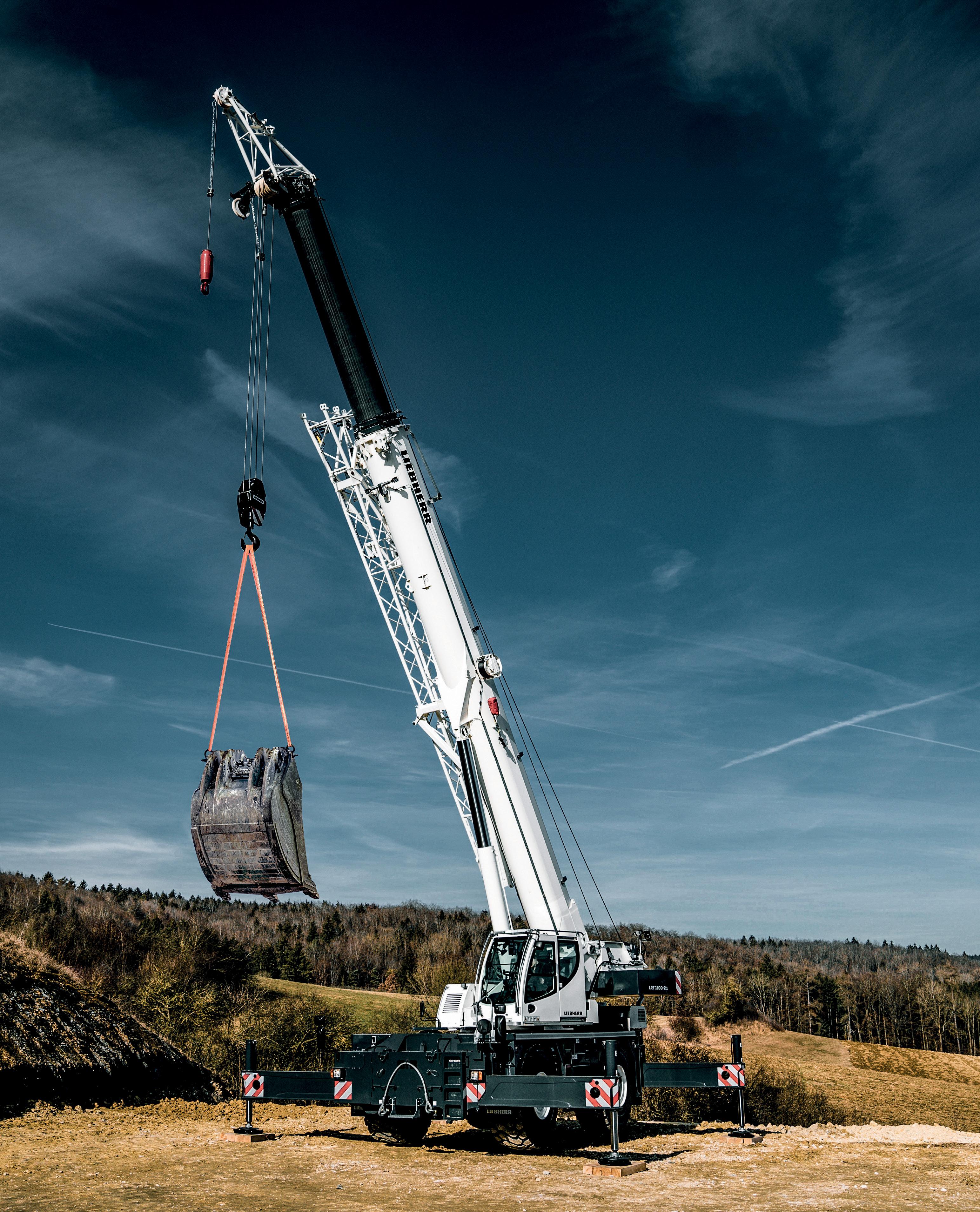 Mobile and crawler cranes
Mobile and crawler cranes

Laura Morgan predicts a positive year ahead for UAE construction, and Rick Fox discusses a revolutionary building material

12
A wrap-up of the biggest international construction news stories for the month


CBRE report finds that Bahrain enjoyed a strong 2022 due to positive market sentiment

Vinod Kumar and Geoff Warr share insights into how AI is revolutionising facilities and asset management
Phil Malem
Big Project ME speaks to Phil Malem of Serco Middle East about the UK giant’s work to introduce global best practices to the region

At.Mosphere
Big Project ME profiles the refurbishment of At.Mosphere, the iconic restaurant and lounge on the 122nd floor of the Burj Khalifa

Big Project ME recaps the events of the day at the International Code Council’s inaugural workshop exploring the safe and compliant use of sustainable and innovative technologies in construction
Saudi Arabia launches new development company to oversee development of the New Murabba project
industry to progress forwards, Big Project ME now stands clear as a voice for the industry.
Of course, I can’t not mention Simon Cobon, our indefatigable art director and the creative vision behind the magazine. He’s someone I’m indebted to for making my words look good on the page. It is these people (and many more) that make me proud to have been a part of this title, and to have contributed, in some small way, to its legacy.
Over the last decade, Big Project ME has undergone a tremendous shift in direction, growth, and perception in the GCC construction sector. From a simple print magazine, we have grown into a brand that encompasses multiple summits and conferences, awards nights, and a formidable online presence.
All of this would not have been possible without the dedication and hard work of Big Project ME’s founder and managing director, Raz Islam, and the tireless contributions of a number of staff who have come and gone over the last 10 years – from Jude Slann, our long-serving commercial director who retired last year, through to our current sales director, Raed Kaedby and our latest recruit, Madeleine Martin.
Of course, I would be remiss not to mention the editorial staff who’ve served on this title as well over the years. Their words and contributions have been crucial for this title’s reputation both locally and abroad, and thanks to their utmost commitment to telling quality stories and developing the narratives necessary for the regional construction
This will be my last issue as Head of Editorial and Content for Big Project ME, and by the time this issue is out in print, I will have left CPI Trade Media. It is with mixed emotions that I’ll be departing – sadness, for sure, as it’s been a part of my life for more than 10 years and I’m very fond of everyone on the team; but also with a sense of satisfaction and pride, knowing that I’m leaving it in great hands for the future. Taking over from me will be Jason Saundalkar, a familiar name to most of you, but someone I absolutely trust to take Big Project ME on to new heights in the future, and of course Raz, Raed, and the rest of the team will still be there.
As for myself, I’ll be taking a short break before recommencing my journey elsewhere, but rest assured, I’ll be keeping a close eye on what this wonderful title is doing in the future.
Farewell and good luck!
Gavin Davids HEAD OF EDITORIAL & CONTENT
gavin.davids@cpitrademedia.com

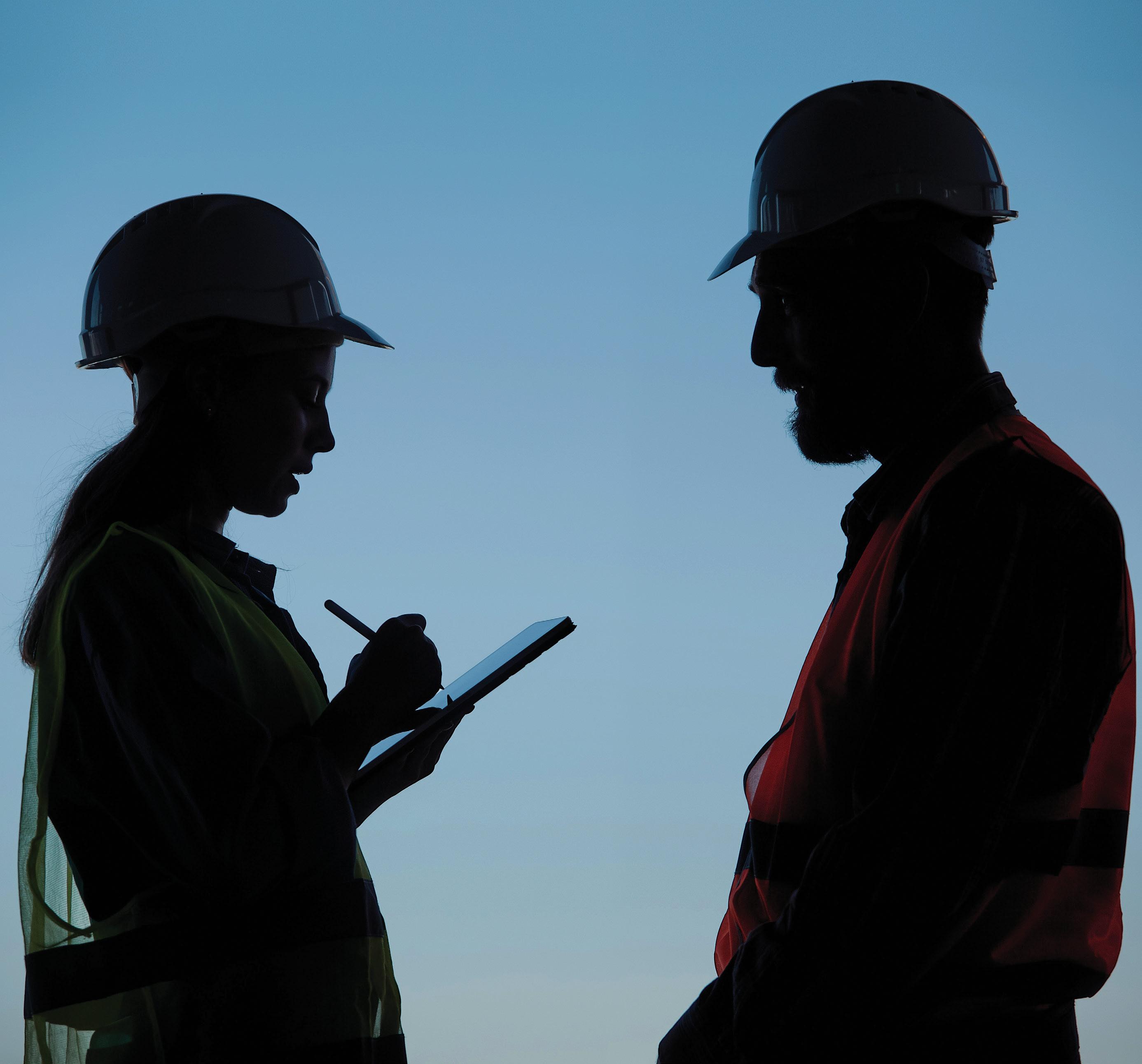
BIG PROJECT ME HEARS HOW ALEC FITOUT LED THE REFURBISHMENT OF DUBAI'S ICONIC AT.MOSPHERE RESTAURANT AND LOUNGE ON THE 122ND FLOOR OF THE BURJ KHALIFA

Big Project ME hears how ALEC FITOUT led the refurbishment of
Restaurant and Lounge in Dubai’s Burj Khalifa
Group MANAGING DIRECTOR Raz Islam raz.islam@cpitrademedia.com
MANAGING PARTNER Vijaya Cherian vijaya.cherian@cpitrademedia.com
DIRECTOR OF FINANCE & BUSINESS OPERATIONS Shiyas Kareem shiyas.kareem@cpitrademedia.com
PUBLISHING DIRECTOR Andy Pitois andy.pitois@cpitrademedia.com
Editorial
HEAD OF EDITORIAL & CONTENT Gavin Davids gavin.davids@cpitrademedia.com
+971 4 375 5480
Advertising
SALES DIRECTOR Raed Kaedbey raed.kaedbey@cpitrademedia.com
+971 4 375 5715
SALES EXECUTIVE Madeleine Martin madeleine.martin@cpitrademedia.com
+971 4 375 5714
Design
ART DIRECTOR Simon Cobon simon.cobon@cpitrademedia.com
DESIGNER Percival Manalaysay percival.manalaysay@cpitrademedia.com
Photography
PHOTOGRAPHER Maksym Poriechkin maksym.poriechkin@cpitrademedia.com
Marketing & Events
EVENTS EXECUTIVE Minara Salakhi minara.s@cpitrademedia.com
+971 4 433 2856
SOCIAL MEDIA EXECUTIVE Dara Rashwan dara.rashwan@cpitrademedia.com
Circulation & Production
DATA & PRODUCTION MANAGER Phinson Mathew George phinson.george@cpitrademedia.com
+971 4 375 5476
Web Development
The publisher of this magazine has made every effort to ensure the content is accurate on the date of publication. The opinions and views expressed in the articles do not necessarily reflect the publisher and editor. The published material, adverts, editorials and all other content are published in good faith. No part of this publication or any part of the contents thereof may be reproduced, stored or transmitted in any form without the permission of the publisher in writing. Publication licensed by Dubai Development Authority to CPI Trade Publishing FZ LLC. Printed by Al Salam Printing Press LLC.
Trade Media. PO Box 13700, Dubai, UAE. +971 4 375 5470 cpitrademedia.com © Copyright 2023. All rights reserved.
WEB DEVELOPER Abdul Baeis abdul.baeis@cpitrademedia.com
WEB DEVELOPER Umair Khan umair.khan@cpitrademedia.com
FOUNDER Dominic De Sousa (1959-2015)
the iconic At.mosphere
Winning an inaugural ME Digital Construction Award will be a recognised badge of excellence amongst your clients and peers.
These awards celebrate the technology champions who have played a key role in the digitalisation of the construction industry, which is at the heart of the GCC economy.

These awards celebrate the companies, organisations and solutions providers whose construction technology solutions lead the way – whose out-of-the-box innovations deliver critical commercial ‘edge’, day in, day out. They honour the achievements of the key players responsible for the industry’s dramatic post-Covid re-set, which has seen digitalisation become a pillar of the industry.
The inaugural ME Digital Construction Awards is brought to you by Big Project ME, one of the leading trade titles in the region.
To ensure complete objectivity, the Awards are judged by a specially recruited judging panel and
are influenced by one criteria only – the informed decision that they are truly the best-in-class.
We look forward to honouring your business.
Built around the concept of transparency and clarity, the awards are decided upon by an independent panel of judges from across the spectrum of the industry.
Given that the awards are targeted at the digital construction technology industry, the editorial team take considerable efforts to ensure that nominees are assessed by the appropriate experts who have a chance to assess nominations both individually, and in a group discussion. This ensures that winners are chosen on the basis of the work they do over the course of the year, and on the reputations, they develop with the industry.
At CPI Trade Media, we are proud to state that our awards are unbiased, transparent and fair, with no external influences on the decisionmaking process.
Award Nomination Enquiries
Jason Saundalkar | +971 4 375 5475 jason.s@cpitrademedia.com
Table Booking & Sponsorship
Raed Kaedbey | +971 4 375 5715 raed.kaedbey@cpitrademedia.com
Madeleine Martin | +971 4 375 55714 madeleine.martin@cpitrademedia.com
2023
GOLD SPONSOR
BRONZE SPONSOR SILVER SPONSOR
SUPPORTING PARTNER
SUPPORTING PARTNER
SUPPORTING PARTNER
PRESENTED BY PRESENTED BY
PRESENTED BY
CONSTRUCTION
Moro Hub inaugurates green data centre facility
SUSTAINABILITY
Sharjah Sustainable City launches ‘Discover Your Urban Farm’ initiative

INTERVIEW: Infrastructure, healthcare and hospitality to drive GCC construction in 2023

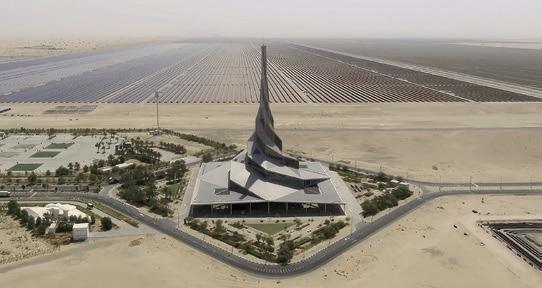
ENERGY
DEWA and ENOC sign MoU to develop and operate hydrogenbased mobility pilot project
CONSTRUCTION
Jeddah Historic District’s Waterfront Project launched
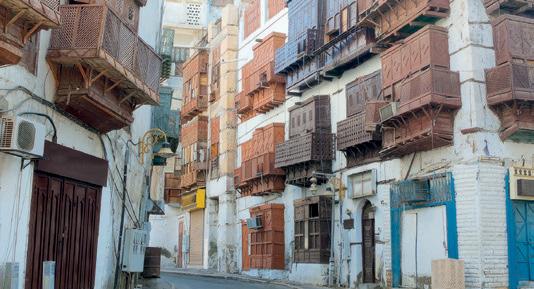

PROPERTY: Real estate outlook positive in Dubai and Saudi Arabia
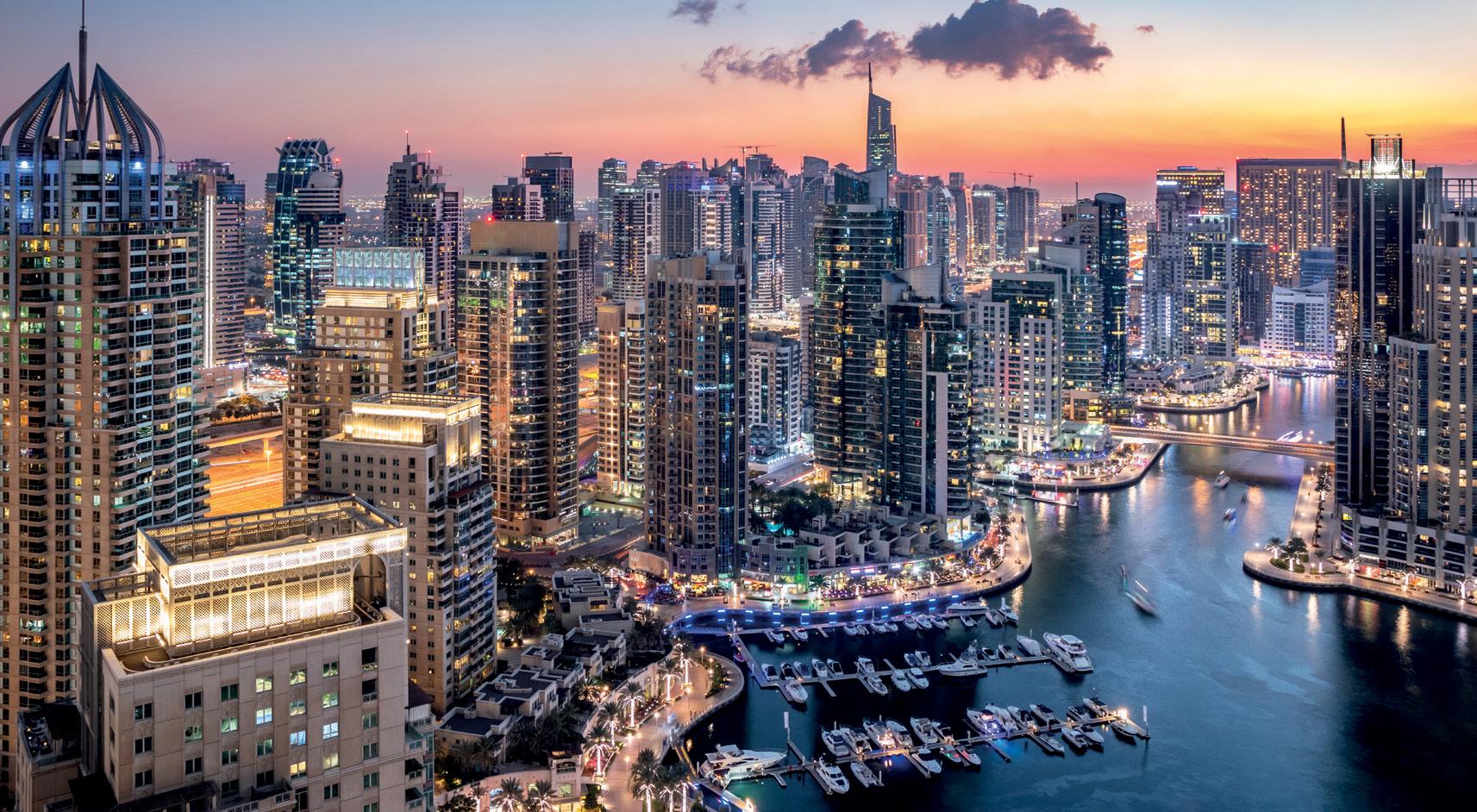
PROPERTY
Metropolitan Premium Properties closes sale of $24.6mn Tilal Al Ghaf villa
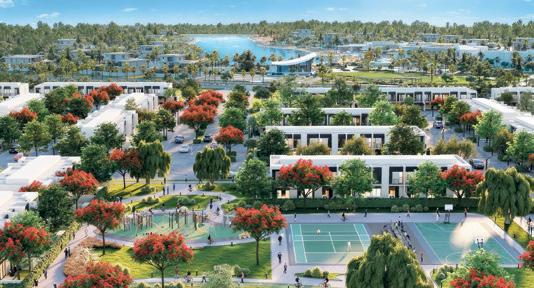
INTERVIEW: Desert Board to help regional construction sector achieve Net Zero
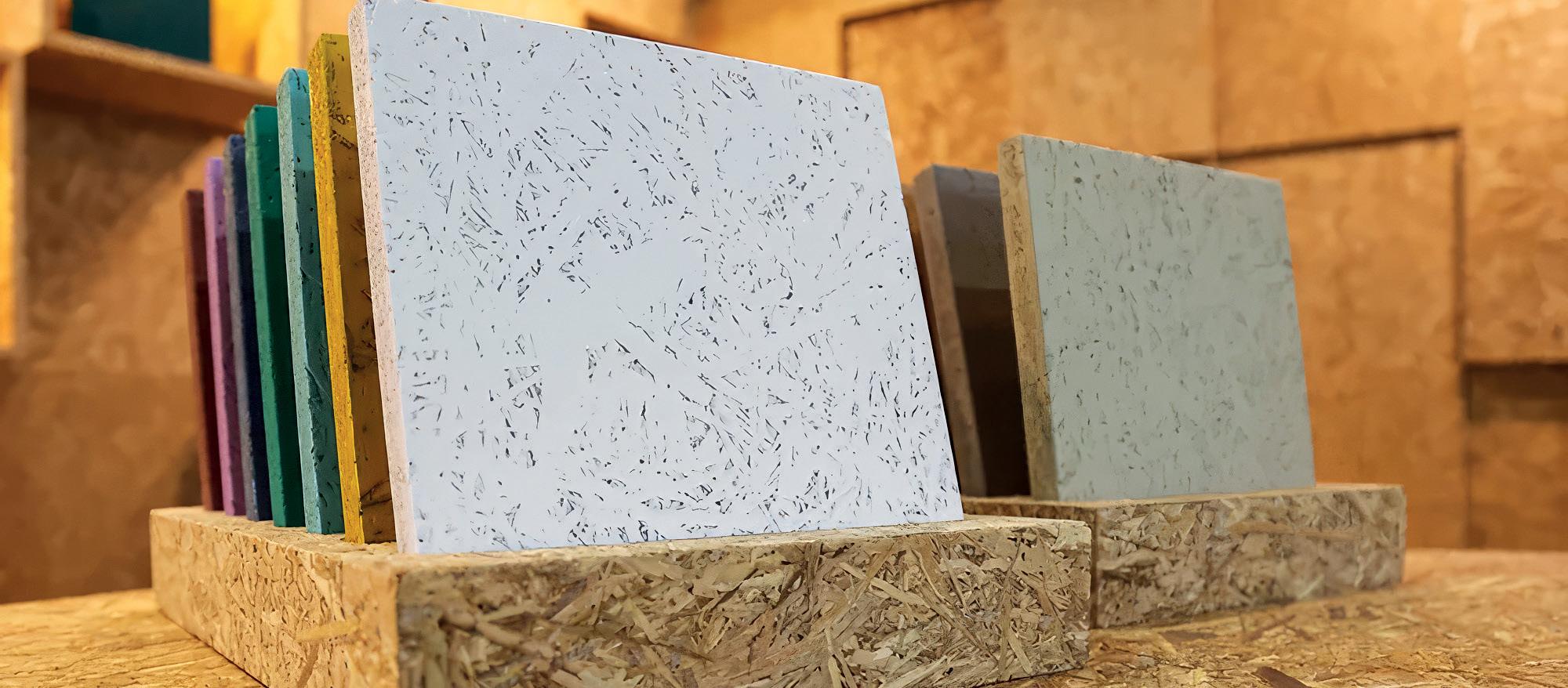
Expert intel on Access & Handling, boosting output, functionality and workplace best practice
Register now for free!

PROPERTY
Saudi Arabia’s NHC launches Al Fursan Suburb in northeast Riyadh
The new suburb will offer a ‘new concept of housing and modern styles that carry the spirit of architectural originality’
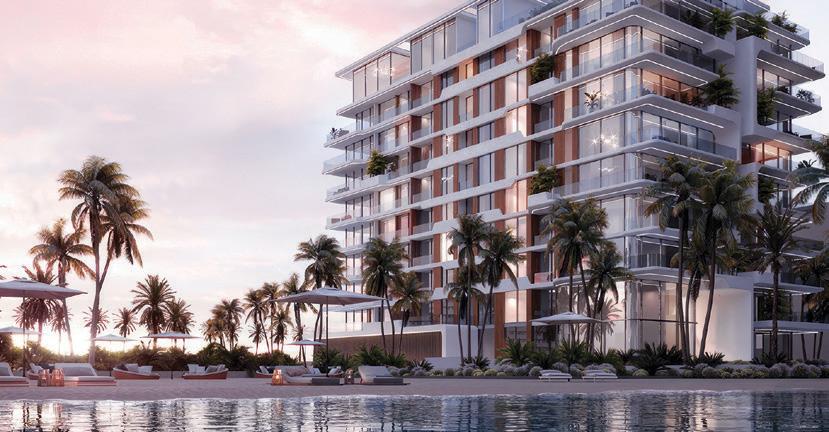
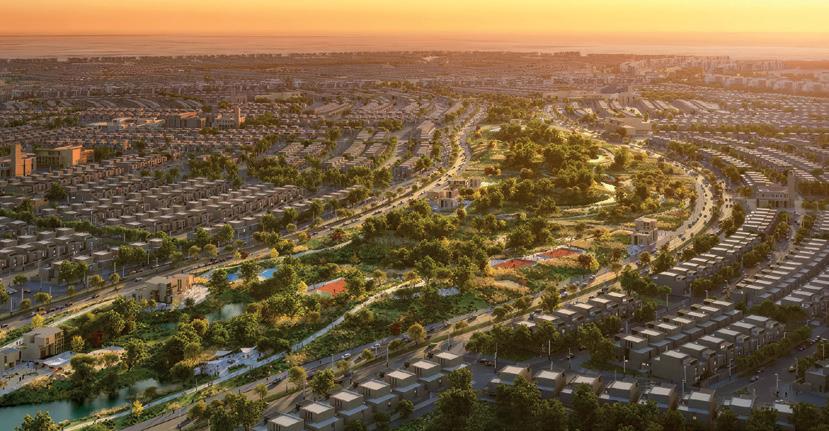
CONSTRUCTION
Emirates to build $135mn advanced training facility in Dubai
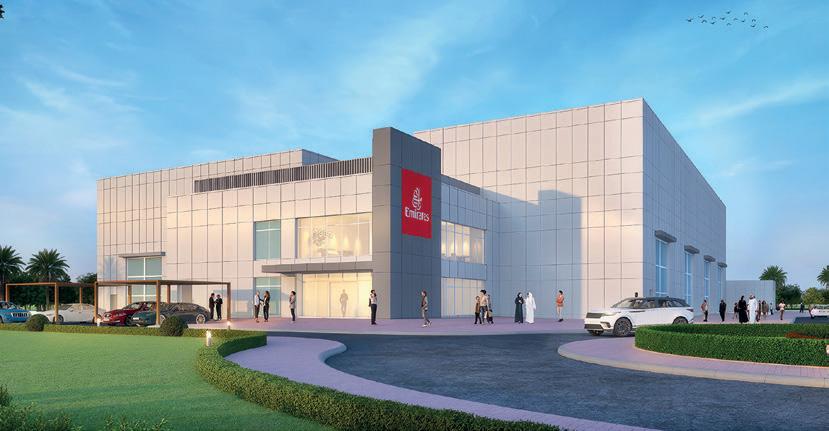
The facility will commence training its first batch of A350 pilots by June 2024
CONSTRUCTION
Mawani and Maersk break ground on $346mn logistics park
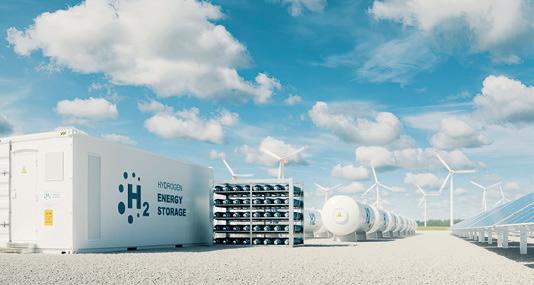
The comprehensive logistics zone at the Islamic port of Jeddah will support the growth of the logistics industry
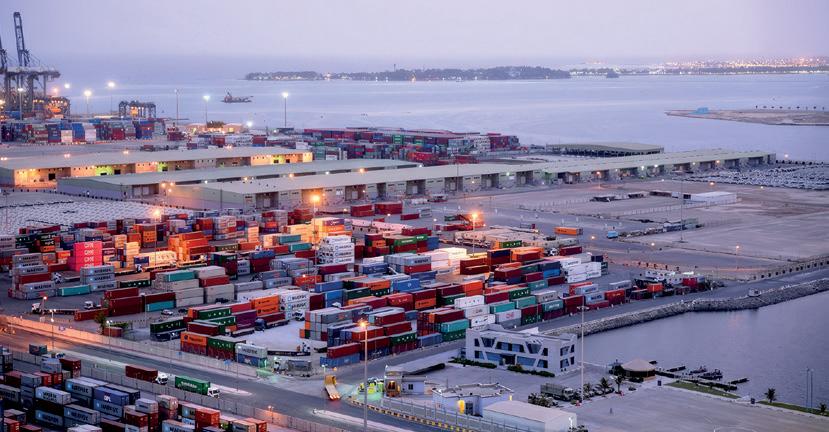
PROPERTY
Taraf launches ‘Luce’ on the Palm Jumeirah
‘Luce’ is Yas Holding’s entry into the emirate’s pre-eminent real estate neighbourhood

FINANCIAL
PIF invests $1.3bn in Saudi construction firms
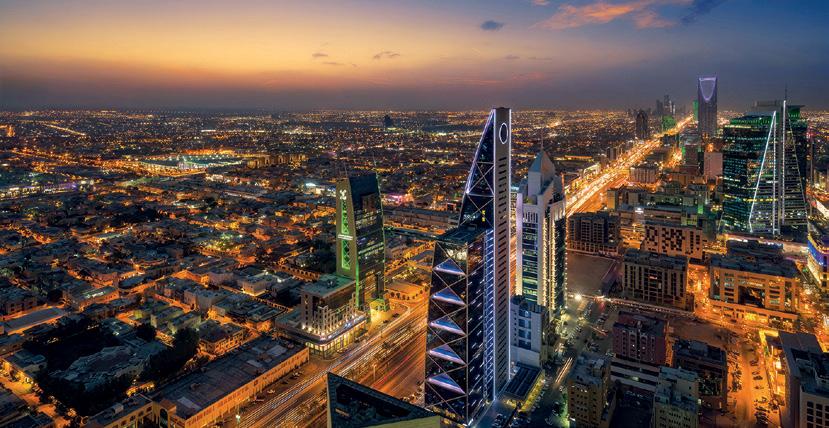
Move set to encourage companies’ regional and international expansion and boost supply chain strength in the Kingdom
MOST POPULAR
CONSTRUCTION
Neom appoints Atkins as a delivery partner for The Line
CONSTRUCTION
SSH completes Phase One of Dhorfar Beach Resort
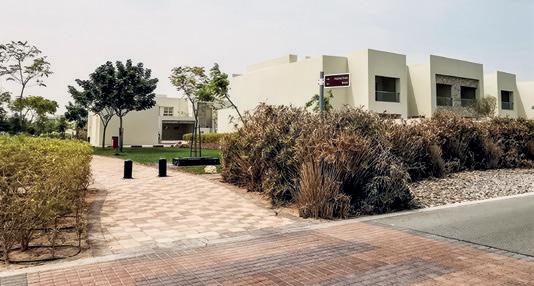
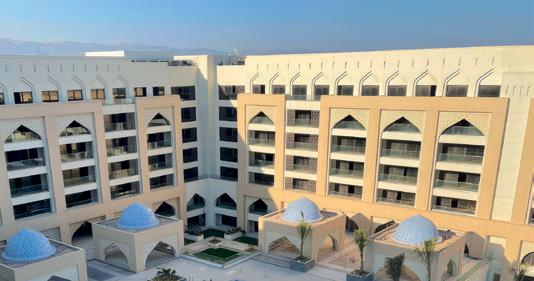
CONSTRUCTION
Kier International awarded $18mn contract for Qiddiya Water Theme Park
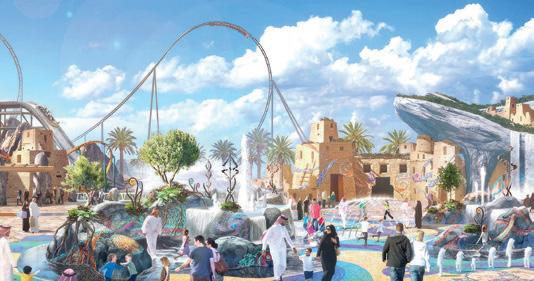
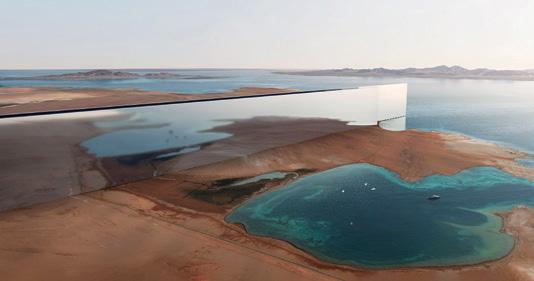
CONSTRUCTION
RAK Properties awards main contract for residential project to Gulf Contracting
ENERGY
Brooge Energy and Siemens
Energy to develop green hydrogen and ammonia plant
Supported by the UAE’s strong development agenda, the Projects of the 50 initiative, and the subsequent focus on industrial, transportation, and energy infrastructure that aims to attract nearly US$150 billion in foreign direct investment by 2030, the country’s construction sector is expected to thrive at an encouraging pace, JLL says.
In a new report, the real estate professional services firm cited GlobalData figures that indicated that the construction sector's growth output will increase by over 3.0% year-on-year. Furthermore, according to Emirates NBD Research, Dubai's construction sector performed moderately throughout 2022, with business activity
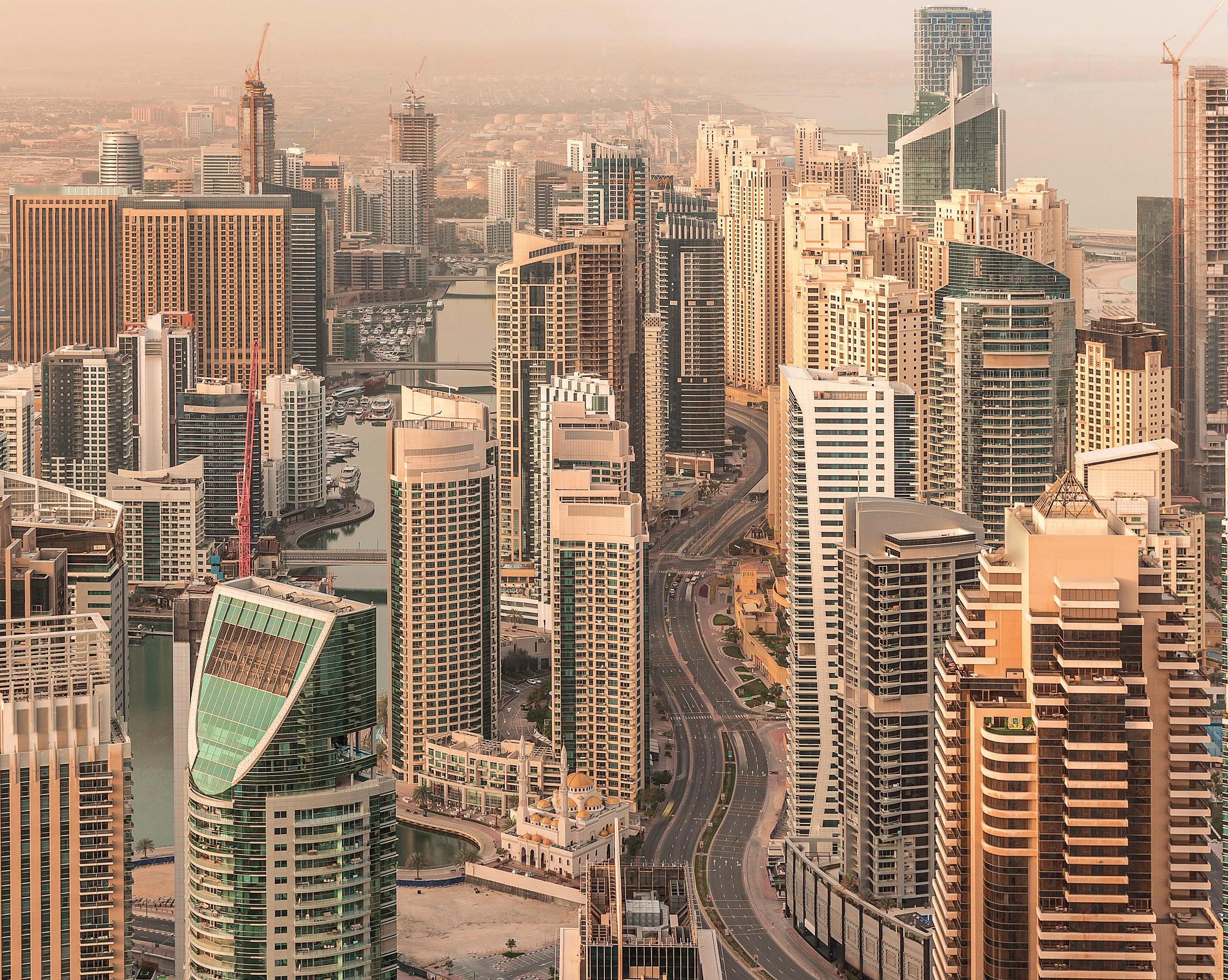
remaining high against conservative new work growth, the firm stated.
The index rose 2.2 points from November 2022 to 55.4 in December, after averaging 51.0 during Q3. The December index was the highest among Dubai's travel and tourism, wholesale and retail, and private non-oil sector indices, the report continued.
Amid sub-sectors, the residential segment maintained its upward trend, with 44,000 units delivered in Abu Dhabi and Dubai since 2022. Furthermore, flagship projects such as Expo 2020 Dubai, and the Museum of the Future, coupled with a strong pipeline entailing the opening of Sea World and the Natural History Museum in the capital, continue to aid the ongoing recovery of the tourism and hospitality sector
Price stabilisation, evolving trends, and the UAE’s development goals have filled the country’s construction sector with positivity for the year ahead, a JLL report has found
UNITED ARAB EMIRATES
terms of projects, the UAE held a 13% market share with a recorded $19 billion worth of project awards
while snowballing on the country's cultural project investments.
In addition, with the UAE government announcing their federal budget expenditure of over US$68.6 billion between 2023 and 2026 in October 2022, the largest proportion, 39% was allocated to the social development and benefits sector. Therefore, catalysing future construction developments through highest levels of social welfare, healthcare, education, economic environment enhancements and investment infrastructure within the country.
Besides, another major factor fuelling the growth of the construction industry is the improvement in oil prices which averaged for $100 per barrel, further supporting the GDP momentum which was estimated to grow by 7% in 2022. Thus, offering oil producing nations like the UAE opportunities to fund economic diversification through development transformation.
In terms of projects, the UAE held a 13% market share with a recorded $19 billion worth of project awards against an overall MENA total of $142 billion in December 2022, compared to $187 billion in 2021, the JLL report said, citing data from a regional provider. Regarding the value of project awards, the construction sector accounted for 60% of it, with residential, mixed-use, cultural, and commercial as the leading segments, it added.
Laura Morgan, Market Intelligence

Lead MEA at JLL MENA said: “On the heels of projects such as District 2020, and the unveiling of Dubai Economic Agenda – D33, improving oil prices, anticipated growth of subsegments, combined with the market offering a certain level of comfort owing to price stability, we are optimistic that the construction industry will continue to rebound
significantly in 2023. That said, evolving trends such as sustainability, technology, and innovation will become key tenets shaping the sector, especially in light of it playing a significant part in achieving the UAE’s vision strategies.”
JLL’s market intelligence data obtained through discussions with local contractors identified that global economic volatility in the first half of 2022 created challenges within the local construction market in relation to delivery lead times and instant price increases, with suppliers reluctant to guarantee prices for extended durations. Construction materials linked to aluminium, such as façade systems, Rebar, and MEP elements like generators and semi-conductors, saw the greatest impact in connection with delivery shipping time, leading to financial bearing and contractors citing the need to micromanage the supply chain to mitigate risks and safeguard project programs, budgets, as well as cash flow. However, improvements were observed between Q2 and Q4 2022, indicating that price peaks may have passed; that said, price increases continue to be a significant risk due to the immediate effect economic forces can have on the construction sector, as evidenced by trends since 2020. Therefore, contractors and developers are proceeding with caution. Future construction costs will be balanced against the local market and global economic factors. While commodity and other construction material prices are softening, the MENA construction sector is strong and reliant on material imports from outside the region, which in turn could attract greater costs. Hence, mitigation strategies are high on the agenda intensified by volatile market conditions and rising construction material prices of which the industry witnessed a price peak in Q2 2022.
According to a survey conducted by JLL with local contractors in the UAE during Q2 and Q3 2022, the main risks within the construction industry impacting business operations today are price fluctuations within the supply chain leading to declining enquiries, followed by bonding requirements, reduced competency, and labour shortage, which also entails a gap in the market for a greater supply of MEP contractors, cashflow / non-payment, and amended construction contracts.
When it comes to client demands, lower pricing continues to play a key role in the fate of traditional projects. With more Design and Build-type projects making their way into the UAE market, there is likely to be an upward trend of the best value with a greater emphasis on technical compliance over lower cost. The participating contractors also stated that they are aware that the price must fit a developer's financial model, resulting in consistent pressure to align contractor prices with the approved budget.
In terms of the rising petition for sustainability within the sector, the majority of contractors underlined that sustainability requirements are frequently addressed during the design process, which is often ESTIDAMA or LEED-focused, while others emphasised that increased demand for sustainability is met through operational green protocols, the implementation of modern methods of construction, evaluating construction operations, educating and training staff, assigning an internal specialist and sourcing alternative products by supply chain evaluation.
Pertaining to tender price inflation, it is estimated that it has increased by an annual average percentage change of 3.5% in 2022 compared to the initial forecast of 2% to 5% pegged from increases during Q2 to Q3 2022. The upsurge is representative of market factors linked to commodity and construction material price fluctuations, evaluated from tender return cost data, market testing, and commodity price trends. Year-on-year growth of 2% is anticipated in 2023 associated with the estimated project pipeline value correlated to future demand and JLL’s intelligence gathered from market sources, it concluded.
2% Yearon-year growth of 2% is anticipated in 2023 associated with the estimated project pipeline value
As greenhouse gas emissions (GHGE) continue to choke the planet and contribute to global warming and – ultimately – climate change, the built environment is under mounting pressure to meet obligations, while reducing its impact on the environment in line with stricter government regulations.
Reports from several industry bodies including the World Green Building Council indicate the built environment is responsible for 39% of global energy related carbon emissions. Drilling down into that figure, 28% comes from operational emissions, from energy needed to heat, cool and power structures, and the remaining 11% from materials and construction.
Addressing these issues is of paramount importance in the fight against global warming and climate change,
and first-hand experience of growing extreme weather is what spurred actor and former NBA player Rick Fox to launch ‘Partanna’ and develop its advanced new building material. The material is said to minimise carbon emissions and remove carbon from the atmosphere.
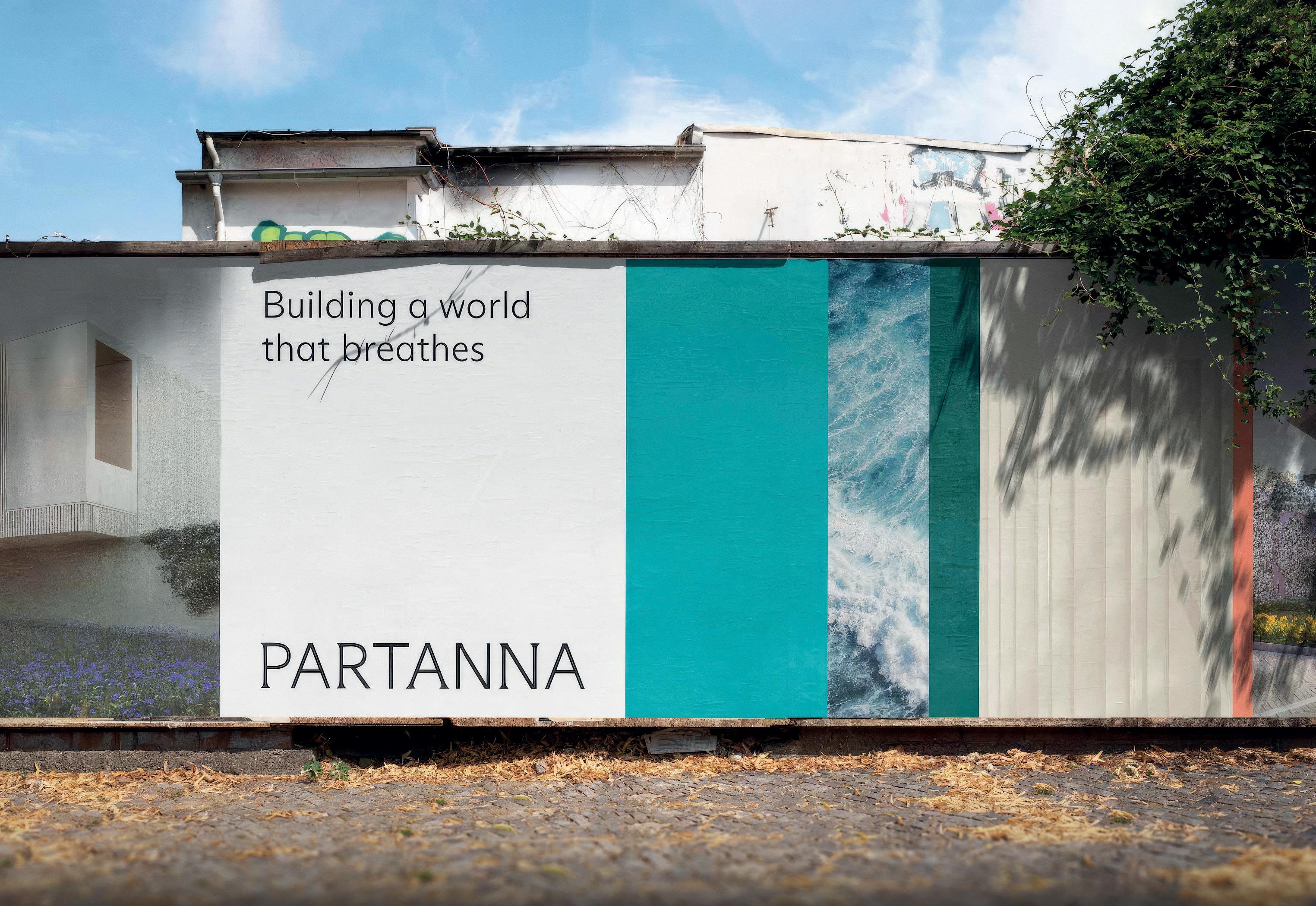
Speaking to Big Project ME about the inspiration behind Partanna, Fox said: “Growing up in the Bahamas, tropical storms were a constant in my childhood. With each storm increasingly stronger, I witnessed first-hand the devastating housing crisis that emerged in the wake of Hurricane Dorian. In California, with more frequent and widespread wildfires, my co-founder Sam Marshall saw his home seriously damaged in the Malibu Wolsey Fire. It was in the height of the pandemic when we first met and shared our stories.”
“With the pandemic exposing the rapid impact of tragedy on a global scale, we realised the same dramatic impact
Jason Saundalkar speaks to former NBA star and actor Rick Fox about his revolutionary new venture – an advanced new building material that claims to minimise carbon emissions and remove carbon from the atmosphere
of climate change. Refusing defeat and inspired to create change, we turned the power of that impact around for the good. For almost two years, Sam and a team of scientists worked on the formula. Then came an opportunity in my home country for the new technology to be applied on the front lines of the war on climate change in the Bahamas.”
In early November 2022, at COP27, Partanna Bahamas and the Government of the Bahamas announced their intent to develop the “world’s first carbon-negative affordable housing development”.
“Partanna is a building material that not only minimises carbon emissions, but also removes carbon from the atmosphere. Indicatively, a typical 1,250sqft home made with cement emits 70.2t of CO2. In contrast, a typical 1,250sqft home made with Partanna is carbon negative, absorbing 22.5t of CO2,” he stated.
Discussing what certifications, the material has received to date and what certifications, it is aiming for going forward, Fox explained: “Partanna’s building material has now been listed by Verra, the world’s largest carbon credits certifier, for its verified ability to remove carbon from the atmosphere and generate tradable carbon credits. In 2022, Partanna was also recognised by the Government of the Bahamas to have met
all standards within its Building Code. As we look to expand around the world, our focus will be on achieving similar Building Code approvals in our target markets.”
Following the launch of the Partanna Bahamas development, a MoU between Partanna and Saudi-based developer Red Sea Global (RSG) was also announced at COP27 in November 2022. The deal will see the firms jointly explore carbonnegative concrete developments, and – as part of the agreement – the parties are exploring an arrangement for Partanna to establish production facilities on Saudi Arabia’s Red Sea coast.
Asked about his plans for taking the new material to a broader audience and how his firm intends to engage with industry players, Fox noted: “We are actively exploring a number of projects in the Middle East and Asia, with parties looking to develop largescale infrastructure and development projects. Our technology is as versatile, durable and adaptable as cement, and manufacturing can be easily scaled. We are breaking ground on a second factory in the Bahamas in 2023 and are actively looking for our next home base.”

“The nearest comparable manufacturers are some distance away from delivering the impact we do. These other technologies inject their product
with carbon acquired from carbon removal projects, which themselves are resource intensive. At best, they’re stopping new emissions from occurring, whereas Partanna is actually removing carbon from the atmosphere.”
“We believe that in time, as we continue to build with Partanna, the wider industry will come to see Partanna as an obvious solution to their building needs,” he added.
In terms of the challenges Fox anticipates in the journey to bringing Partanna to built environment stakeholders around the world.
“Convincing the industry that Partanna is a viable alternative to cement – we hope that the successful delivery of homes in The Bahamas, and our growing project pipeline, will help to evidence the strength of our technology,” Fox stated.
Rick
Government recognition
Partanna
“Establishing local partnerships with third parties to help building codes and manage our supply chain is also on the agenda. We believe that Partanna can be a solution for developers around the world. To scale quickly – we will need to establish partnerships with companies who can support our manufacturing and commercial processes. We want to work with other businesses that share our values and commitment to sustainability throughout their supply chain, so are quickly establishing due diligence mechanisms to ensure the integrity of our relationships.”
Fox added that a “great team that can bring Partanna to the world” is a key goal going forward.
He remarked: “As a steward of this technology, my job now is to assemble and lead a team that has the energy and expertise to make Partanna available at scale. I believe passionately that our technology can add great value to the construction industry.
“The challenge now is making it abundantly available to anyone who is interested in building in a regenerative way. That means attracting the best talent and motivating them around our vision to change how the world builds. Currently, the construction and manufacturing industries are facing great recruitment challenges – but we believe our purpose can help inspire great people to come and join us on our mission,” he concluded.
39% The built environment is responsible for 30% of global energy related carbon emissionsSolution for developers Fox says that Partanna can be a solution for developers around the world and that the company wants to establish local partnerships. has been recognised by the Government of the Bahamas to have met all standards within its Building Code, a significant step for the building material.
Partanna is a building material that not only minimises carbon emissions, but also removes carbon from the atmosphere.
A typical 1,250sqft home made with cement emits 70.2t of CO2. In contrast, a 1,250sqft home made with Partanna is carbon negative, absorbing 22.5t of CO2”



Anew added value was added to the record of the Engineering Contracting Company (ECC) as it culminated its journey as a pioneer in the field of contracting via the establishment of the flexible construction system that it started in 2018. The company has been approved by the British Standards Organisation (BSI) and the International Organisation for Standards (ISO), as the first contracting company in the Middle East and North Africa
that fulfills the requirements and standards required by ISO 18404, related to the requirements for the implementation of flexible systems in the facilities and the personnel supervising the organisation of the systems.
The company established a unique system in 2018, which sought to improve work practices and positively impact the company. These principles contributed to identifying and reducing waste factors, thus enhancing value for the customer. A flexible structure like this is usually adopted by manufacturing companies.
ECC succeeded in adopting these principles as one of its construction practices and was proactive in using them within this field.
As a result, the company recently celebrated obtaining the ISO 18404 certification, making it the first contracting company to be granted this certificate in the Arab region, the Middle East, and North Africa. Accordingly, a ceremony was held on 15 February, in the company’s central headquarters. It was attended by many personalities in the field of
engineering and contracting, as well as representatives from BSI. In the group, Engineer Samer Abu Daqqa, in turn, gave a presentation wherein he talked about all the steps and procedures that he followed with his team, the challenges he faced, and the mechanism of overcoming them by following a systematic and elaborate plan, which resulted in the company obtaining this distinction and appreciation from ISO. The ceremony concluded with the handing over of certificates and photography of the attendees.



Doosan Bobcat has said it will provide construction equipment for relief and recovery activities in the earthquake-stricken areas of Turkey.
The company said that US $1mn worth of equipment would be promptly delivered through its dealer network, so as to be of practical help in lifesaving activities in affected areas, and to help restore critical infrastructure such as collapsed buildings and roads, as well as to help clear rubble from collapsed buildings and structures.
Masdar has opened an office in Baku, Azerbaijan. The move supports the development of the country’s renewable energy sector and Masdar will work closely with the government and other stakeholders.

Azerbaijan plans to increase its installed power capacity to 30% from renewable sources by 2030, to diversify its economy and reduce greenhouse gas emissions. The government has also targeted the development of renewable energy sources as a strategic priority as it looks to establish Azerbaijan as a green energy producer and exporter.
Atkins has been appointed as a delivery partner organisation for The Line at NEOM in Saudi Arabia. The consultancy has been awarded a five-year contract, under a framework agreement, for consultancy services on the linear development.

Atkins will provide project and construction management consultancy services for the design, procurement, construction, testing and commissioning of the project, together with the management of the critical interfaces that the linear city shares with adjacent NEOM projects and logistics.

Dubai Future Foundation (DFF) has signed an agreement with the Massachusetts Institute of Technology (MIT) to launch the region’s first-ever Senseable City Lab, a global MIT initiative that researches and tests pilot projects for planning urbanisation and the rapid growth of cities.

Senseable City Lab conducts interdisciplinary research in Singapore, Stockholm, Amsterdam, Lagos, and now Dubai.

Diriyah Gate Development Authority (DGDA) has achieved a major health and safety milestone, clocking more than 30m man-hours of accident-free working, across a 19,181-strong workforce.
During that timeframe, the DGDA team said it also used more than 1,200 pieces of heavy equipment at its project site.
The milestone reflects the commitment to providing a safe working environment and validates the implementation of the OHS department’s comprehensive measures to mitigate risks, ensuring the well-being of people in the workplace.
Sharjah-based developer Arada has successfully closed a US$50 million second tap of its existing $450 million sukuk, which was issued last June and listed on the London Stock Exchange.
The five-year tap is the UAE developer’s third approach to the capital markets in the last nine months and the investor re-offer yield was posted at 8.488%. \
Mashreq acted as sole manager and bookrunner for the second tap.
Arada’s second tap follows a first tap executed in October 2022 for US$100 million
Aldar Properties has signed an agreement with Dubai Holding to set up a joint venture (JV) entity for developing new living experiences across prime locations in Dubai. The firms said that the agreement, which marks Aldar’s entry into the Dubai real estate market, is part of the developer’s broader expansion strategy into new markets.

The JV will develop new communities in three locations across a total area of 38.2m sqft. These communities will be located in the suburban areas of Dubai, along the E311 and E611 corridors.

Raja Alameddine has been appointed Chief Executive Officer in the MENA region for Colliers, the firm has announced. The firm said it partnered with physical asset management company Eltizam Group in early 2022, and now sits within the iREC Holdings division, which is part of the Eltizam Group.
Alameddine has over 30 years of experience in the real estate industry and is an expert in various asset classes, including master-planned cities and large-scale mixed-use communities.
JLL has appointed Larry Baker as the Director of Data Centre Solutions, Project & Development Services Middle East & Africa. He will lead and develop JLL’s data centre projects across the region from Dubai.
Baker’s appointment will help JLL address the upsurge in demand for specialist data centre projects and development services in the Middle East and Africa (MEA), while aligning with its global data centre client’s local requirements.
He has more than 30 years of experience delivering data centre and missioncritical facilities around the globe.

BAHRAIN
On the back of strong GDP growth, high oil prices and new fiscal reforms, Bahrain’s real estate transaction volumes continued to improve throughout the end of 2022, reaching 5,659 transactions in Q4 and ending the year with a total of 21,603. This marks a full-year increase of 0.7% year-on-year compared to 2021, and a jump of 3.2% from Q3.

Looking at Bahrain’s office sector, CBRE data
shows that Grade A & B office rental rates stabilised in 2022, at a monthly average of BD5.250 per square metre, having recorded a decline in the previous year. With supply continuing to outpace demand and key pipeline projects becoming operational in the next twelve months, it is anticipated that rental rates will continue to face downward pressure.
In the residential sector, average quoted apartment rental rates fell marginally in Q4 2022, down 0.4% from the previous quarter. In terms of sales, average rates declined by 1.3% in the fourth quarter, following a brief increase in Q3 2022. Average quoted villa rental rates slightly increased in Q4 2022, with rates increasing by 1.5% from the previous quarter, while quoted sales rates fell by 0.8% over the same period.
Overall, for 2022, villa rental rates averaged BD923 per month across all villa types and governorates in the mid- to high-income market segment. Bahrain has seen the launch of the latest government-led housing programme, which will provide 19,000 affordable housing units at a total value of US$2.65 billion.
The launch of the first phase includes 771 units (both villas and apartments) in Salman Town and Khalifa Town.
Within the hospitality sector, data shows that hotel occupancy in Manama increased by 6.8 percentage points compared to 2021, and one percentage point compared to Q3 2022. Whilst ADRs increased year-onyear by 22.1% compared to 2021, they fell by 1.2% compared to Q3 2022. As a result, RevPARs increased by 41.2% compared to 2021 and 2.4% compared to Q3 2022.
The last quarter of the year saw the opening of Exhibition World Bahrain, a ten-hall exhibition/convention centre with a total area of 95,000m², making it the largest centre of its kind in the region. Built at an approximate cost of US$223.4 million, the launch of the venue forms part of the government’s strategy to diversify the economy, focusing on industries such as MICE, events, entertainment and sport. Q4 also witnessed the return of cruise ships for the first time since the COVID-19 pandemic, bringing more than 11,000 tourists over just three days in December.
On the back of strong GDP growth, high oil prices and new fiscal reforms, Bahrain’s real estate transaction volumes continued to improve through 2022”
MIDDLE EAST

Facilities Management as an industry has seen a transformational shift, with rising trends of integrating advanced technologies within FM operations and the digitisation of fundamental elements of day-today activities. The COVID pandemic only further accelerated this trend as people didn’t want people in buildings and wanted more automation.
Among the various trends, leading regional and international FM service providers have implemented intelligent
AI technology in their systems to increase operational efficiency and conserve energy which goes handin-hand with companies looking to achieve net-zero and ESG goals and control overall energy usage.
As FM service providers, we exploit this technology and use it to enhance our services in a way that benefits the customer and society as a whole.
In terms of AI technologies used in FM, we at Inspire Integrated, use multiple solutions that cater to all areas of the business. Facilities Management
Vinod Kumar and Geoff Warr of Inspire Integrated, share their insights into how artificial intelligence is being utilised by the FM industry to enhance services and improve performances
comprises various aspects and we work with our experienced technical team to develop unique solutions that enhance efficiency across these different aspects.
Through machine learning, our software , integrates AI with Building Management System (BMS), giving AI the control of systems across the building.
AI integrated buildings have the ability to collect information from different data points and systems, analyse that information, then use it to make decisions and apply changes that would make subsystems across the building work more efficiently.
For example, AI can collect information about the weather forecast, outside and inside temperatures, building occupancy, working schedules, etc. and based on that decide fresh air allocation, how to optimise the variable frequency driven chillers etc. The more we apply this concept across different aspects and subsystems in the building, the more efficient our operations become, and the more energy and resources are conserved.
At Inspire Integrated, we implement a series of AI-powered solutions as such, each serving distinctive purposes. We then connect them all through our PropEzy platform, which is a digitised software that amalgamates systems and operations from the built environment and unifies all the data on one system.
Another area of Facilities Management that is being reinforced with AI technology is planned maintenance. Traditionally, with planned preventative maintenance as per SFG20 guidelines, FM teams implemented a maintenance schedule irrespective to the asset usage.
For instance, if a routine maintenance is scheduled for 12 times in a year, it means that maintenance teams will need to visit the site and check on the condition of the equipment at least once a month to make sure operations are running smoothly.
However, with the integration of AI technology and IoT sensors, facilities managers can now adapt a predictive maintenance plan. In this case, smart sensors are utilised to monitor the

Analysing information AI integrated buildings have the ability to collect information from different data points and systems, analyse it and use it to make decisions and apply changes to improve efficiency.
Predictive maintenance plans
AI can be integrated into buildings to reinforce planned maintenance plans and respond quicker to irregularities, say Vinod Kumar and Geoff Warr.

equipment and indicate any irregularities by alerting the FM team to resolve the issue. This allows FM managers to reduce the frequency of planned maintenance schedules and analyse data that will help in understanding patterns and simplify future planning.
Using AI to amplify one’s FM operations results in saving transport time, resource and materials, without affecting the final output. This technology can be implemented depending on the project or equipment at hand and is not a standardised process that can apply to all assets. Lastly, intelligent AI solutions can also enhance the asset’s visitor management system. AI-integrated visitor management systems are equipped with smart technologies which facilitate seamless entry for visitors from the parking area all the way to the apartment/office. These technologies include Automatic Number Plate Recognition (ANPR) at the parking entrance, facial recognition and smart access control via the authorised users’ mobile phone. A visitor management system provides live monitoring of visitors, access for authorised people only, facilitates drop-off/pick-up arrangements, daily visitors log, etc.
There are many ways Facilities Managers can incorporate AI to enhance their operational efficiency and work towards achieving their ESG goals. In addition to the previously mentioned solutions, we at Inspire Integrated rely heavily on the unique capabilities of PropEzy.
Our FM teams can control, monitor and analyse the performance of assets through the data generated on it’s PowerBI dashboard, which is sourced from various data points including the mobile application that technicians use to record the progress of jobs and activities.
The dashboard generates valuable information that aids the planning and decision-making process of managers, such as the number of hours saved, printing cost saved, calling cost saved, number of trees saved as a result of paper-less activity and much more.
It is clear that investing in AI is a step forward for FM service providers to remain competitive and as more companies implement these solutions, it becomes more apparent the value they provide, not just in terms of efficiency, but in terms of resource allocation and reduction of carbon footprint which is critical to hitting our Net Zero goals.

2,100 Inspire Integrated is a market leader in the FM sector with over 2,100 employees
BIG PROJECT ME INTERVIEWS PHIL MALEM, CHIEF EXECUTIVE OFFICER AT SERCO MIDDLE EAST, TO HEAR ABOUT HOW THE GLOBAL GIANT AIMS TO HELP THE REGION’S GOVERNMENTS AND ORGANISATIONS ACHIEVE THEIR AMBITIONS IN 2023 – THE UAE’S YEAR OF SUSTAINABILITY


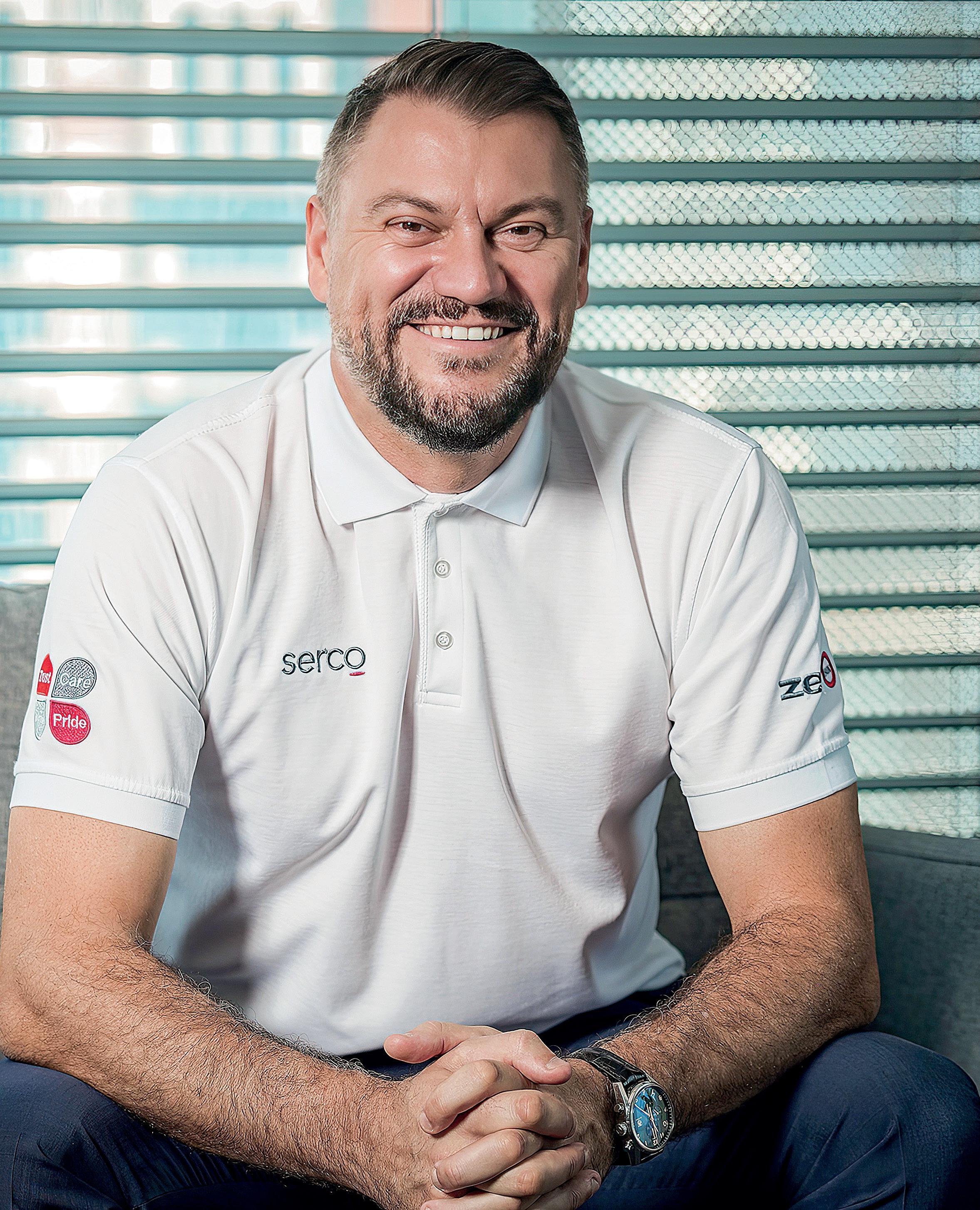
ith COP28, and the recently completed COP27, being held in the Middle East, sustainability has been firmly in the spotlight for the region, across all spheres of business and industry. However, nowhere has this been felt more strongly than the built environment, where significant steps are being taken across related industries to push forward with sustainability and carbon emissions reduction methods.
As awareness of sustainability grows, there has been a strong uptick in adoption of policies and processes from companies looking to implement better standards and procedures to become greener and more efficient across the board. Despite this interest and willingness to grow and develop, there remains a lack of knowledge and understanding from organisations, industries, and even governments about what sustainability actually entails.

In order to answer these questions, Serco Middle East, the global professional services company, recently launched the Advisory with Purpose division. Committed to driving Environment, Social, and Governance goals, the firm says that the new division

will help it support organisations and governments in the region to achieve their environmental and sustainability targets via an advisory service that spans from concept to implementation.
In a year when COP28 will dominate the agenda of the UAE, the launch of the Advisory with Purpose division will continue to cement Serco’s continued commitment towards embedding the latest global best practices into local organisations and government entities.
This will not only help improve performance, but will also ensure the transfer of knowledge, skills, and resources from Serco’s experts who specialise in
sustainable, socially responsible advisory services, says Phil Malem, who spoke to Big Project ME about the British multinational’s plans for the coming year, and his thoughts on the region’s future, and the legacy of the COP events.

From a business perspective, what was 2022 like for Serco Middle East?
Last year was a strong year for the business. Despite a challenging geopolitical and economic landscape, we showed resilience and delivered a strong trading performance, in addition to launching several new ventures to support regional growth.
From an operational perspective, we proactively demonstrated our commitment to KSA with the launch of a new regional hub in Riyadh. This is part of our long-term strategy to develop our Saudi-based resources. We are working on numerous high-profile contracts, and we anticipate continued growth. Our predictions are that the Kingdom will account for over 50% of Serco Middle East’s revenues by 2026.
Finally, we continue to support nationalisation efforts and are future proofing the business with a continued emphasis on attracting the best emerging talent in the region to join us. Last year was the third year of our Graduate Programme in the UAE and KSA. As a business, we are
committed to making a difference to the lives of citizens and residents in the region and bringing national visions to life and we will be continuing this programme - and our commitment to creating future leaders - into 2023.
What were some of the major growth areas for the company and how did the company successfully pivot in response to changing market demands?
With COP28 shining a spotlight on this region, we launched our Advisory with Purpose division and we’re looking forward to helping organisations act on their commitments to ESG in a way that enables them to reduce operational costs through digital asset management, create a better future for citizens and residents by providing customer experience expertise, and protect the safety and security of the region through emergency services and crisis management.
We have a long heritage in supporting governments and organisations alike to reach their visions and we are now investing even more into helping them reach their net zero and ESG goals.
The recent launch of our Advisory with Purpose division is a natural progression of the work we have been increasingly doing over the years, and now we’re harnessing our expertise, experience, and ability to implement an under-one-umbrella offering to continue to create a better future for citizens and residents in the region.
How will the company’s performance in 2022 shape its future moving forwards?

As a business that works closely with governments and corporations across the region, our company performance and role reinforce our commitment to our duty to do the right thing. We want to ensure we are operating with purpose at every level. Purpose is what is in our DNA. It’s what motivates us to deliver great work in a positive and sustainable way every day. It is also the seed from which the Advisory with Purpose division sprouted. We have also partnered with the sustainable activewear and streetwear company, The Giving Movement to design eco-friendly workwear for our colleagues, which we announced at our
Leadership Conference in January. We expect to be making additional, similar announcements about how our company is taking purpose to the very heart of our business operations in the future.
What will be the company’s focus areas in 2023?
For 2023, our focus areas will be bringing national visions to life, whilst supporting organisations to operate sustainably. To support this, our Advisory with Purpose division has recently launched, and so, in 2023, this will also continue to grow into a major part of our business offering here in the region.
We have been operating in Saudi Arabia for more than 10 years and we have made significant recent investments there to enable us to support the Kingdom’s significant investment in public infrastructure, as part of its Vision 2030 goals. We will continue to strengthen our regional hub in Riyadh, and we already have advisors across the Kingdom’s public sector and government agencies. The Kingdom is where we see the most amount of growth coming from in the
Serco Middle East had been operating in KSA for 10 years prior to opening its new office in Riyadh
region, and we are committed to bring our operational expertise to help advise on strategies and plans for the long-term.
We are also excited that Serco will have a stand at SpaceOps in March, members of our global space division will be in attendance, and we will be sharing a major update on our plans for Serco’s Middle East Space division. So, it has been a busy start to the year, and there is much more to come.
How are you working with regional governments to help them deliver on their ESG ambitions, and how will the Advisory with Purpose division help with this?
We were very proud to launch our Advisory with Purpose division last month. With President His Highness Sheikh Mohamed bin Zayed Al Nahyan announcing 2023 as the ‘Year of Sustainability’ in the United Arab Emirates, and measures also featuring heavily in the Kingdom of Saudi Arabia’s transformative Vision 2030 ambitions, we wanted to take proactive steps to support organisations and governments to achieve their environmental and sustainability targets through an advisory service that spans from concept to implementation.
The launch of the Advisory with Purpose division cements our continued commitment to embed the latest global best practices into local organisations and government entities, enabling them to meet their ESG commitments.
This will help improve performance
through the transfer of knowledge, skills and resources from our experts who specialise in sustainable, socially responsible advisory services both globally and in the region. It will also help us to train workforces in ESG, so that we are supporting nationalisation mandates –which is strategically important to Serco.

How do you anticipate COP28 impacting the way organisations look at sustainability and the way they do business and develop their projects?
With 2023 being the ‘Year of Sustainability’ in the UAE, and COP28 being a platform
for the region to drive positive change and best practice to protect the people and our planet, organisations will increasingly need to demonstrate they are operating sustainably. ESG is on everyone’s mind – and governments and organisations across the board will need to ensure they are driving towards these goals.

This means that all aspects of business operations need to be looked at, and so there will be an increasing focus on the use of technology, digital assessment management and operating with purpose to ensure we are contributing towards a better planet for future generations.
Nationalisation efforts are another major focus area for Serco Middle East, how are you helping regional governments achieve their nationalisation targets?
We believe that knowledge transfer is key to accelerating nationalisation agendas. If we take KSA as an example, through Vision 2030, the Kingdom will gradually reduce its reliance on international contractors by fostering the skills, capabilities, experiences and qualified personnel within its own population. We have a major role to play here – and we’re proud to help bring national visions to life, whereby we train local workforces that can accelerate the visions of the government.
As a business that works closely with governments and corporations across the region, our company performance and role reinforce our commitment to our duty to do the right thing. We want to ensure we are operating with purpose at every level”
Half of Serco’s executive leadership team consists of women
An example of our work here is our partnership with Expro, where we provide management consultancy services, for a very complex and critical scope of work to the Kingdom. National development programmes will also be key in knowledge transfer and support the sourcing, recruitment, training and development of Saudi nationals within businesses. Another core pillar of Vision 2030 is the privatisation of certain governmental and semi-governmental entities and services. There is no better way to partner with regional governments, than through the development of Saudi nationals. We are passionate about our role in supporting regional governments through our graduate programmes and bringing international best practices to the region.
Further to that, how is Serco helping to improve the gender disparity in the regional workforce?
Our aim at Serco is to create a culture that is diverse and inclusive. Serco allows individuals to experience different facets
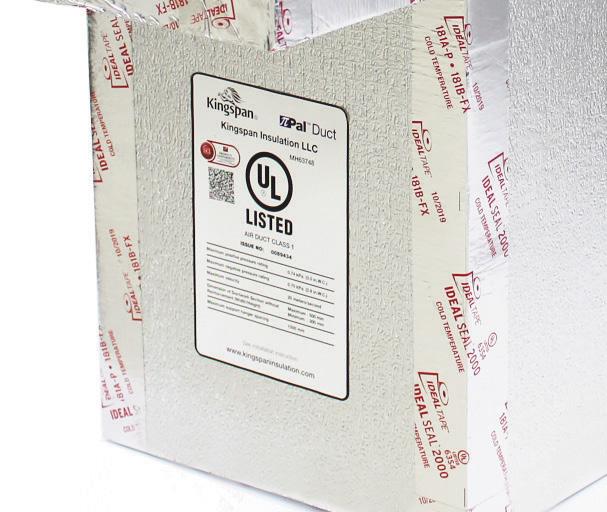
of the organisation to become wellrounded employees and leaders in the future. In order for a diverse workforce to thrive, we need to encourage women into more roles that are traditionally male dominated; this will allow them to accelerate their path to leadership.
50% of our executive leadership team are women, but we know we have more to do, and so we have a multitude of initiatives to support women at Serco. We have established a focus on women in leadership to get more women in more positions around the boardroom table and from there we are looking at how we can cascade down to support women throughout the business to achieve their ambitions.
For International Women’s Day this year we have planned a special event‘Women in Serco: Leading with Purpose.’ Through this event, we aim to provide a platform for women in our organisation to come together, share their experiences and learn from each other. It’s an opportunity to celebrate the achievements


of women in our workplace and highlight the potential of our female employees.
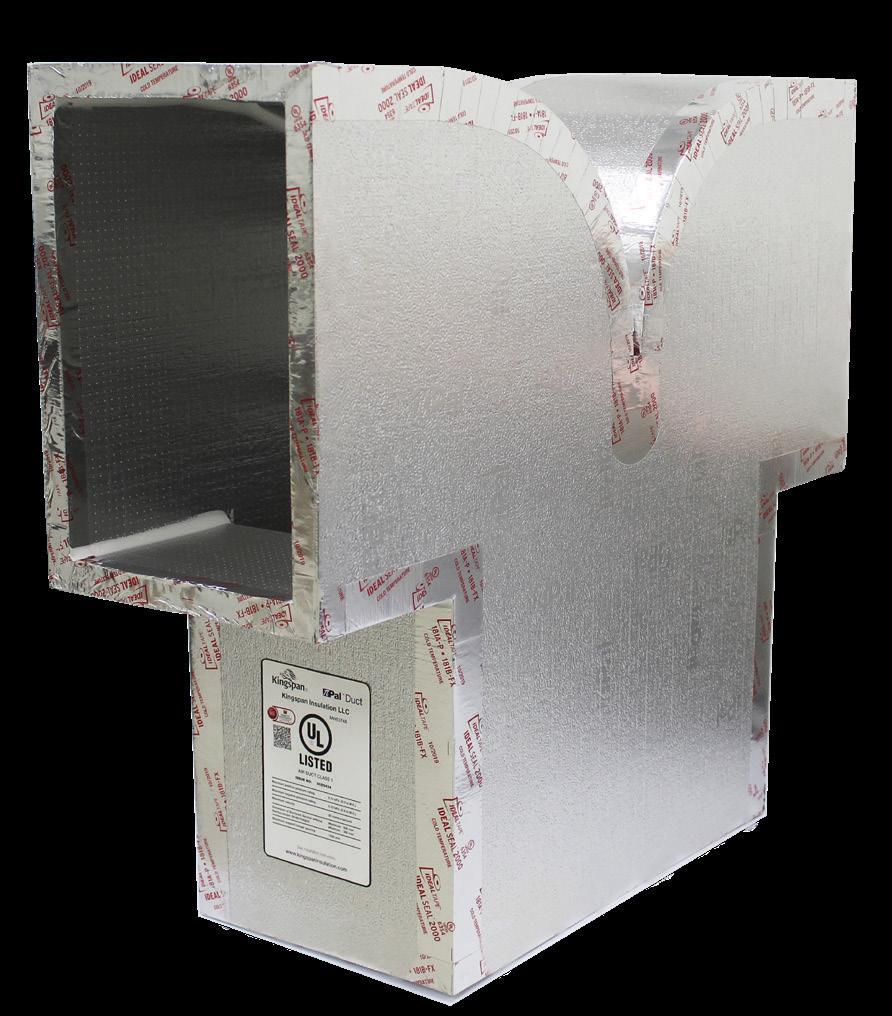
Finally, what are your expectations and plans for the company in 2023? How do you intend position the company for further success in the coming years? This year we remain true to our focus on operating with purpose and bringing national visions to life. We are excited about the opportunity in the Kingdom, and we’re proud to be working on some major contracts that will help realise and drive forward Vision 2030.
This year we also have COP28 in the UAE – and therefore we are looking to helping drive forward ESG agendas, for example through our Advisory with Purpose division, for governments and organisations alike.
Finally, we are looking forward to continuing to build nationalised workforces – and through the transfer of skills and knowledge, we’re proud to be able to play a role in supporting the region to thrive now and in the future.
Serco Middle East’s focus in 2023 will be on bringing regional national visions to life
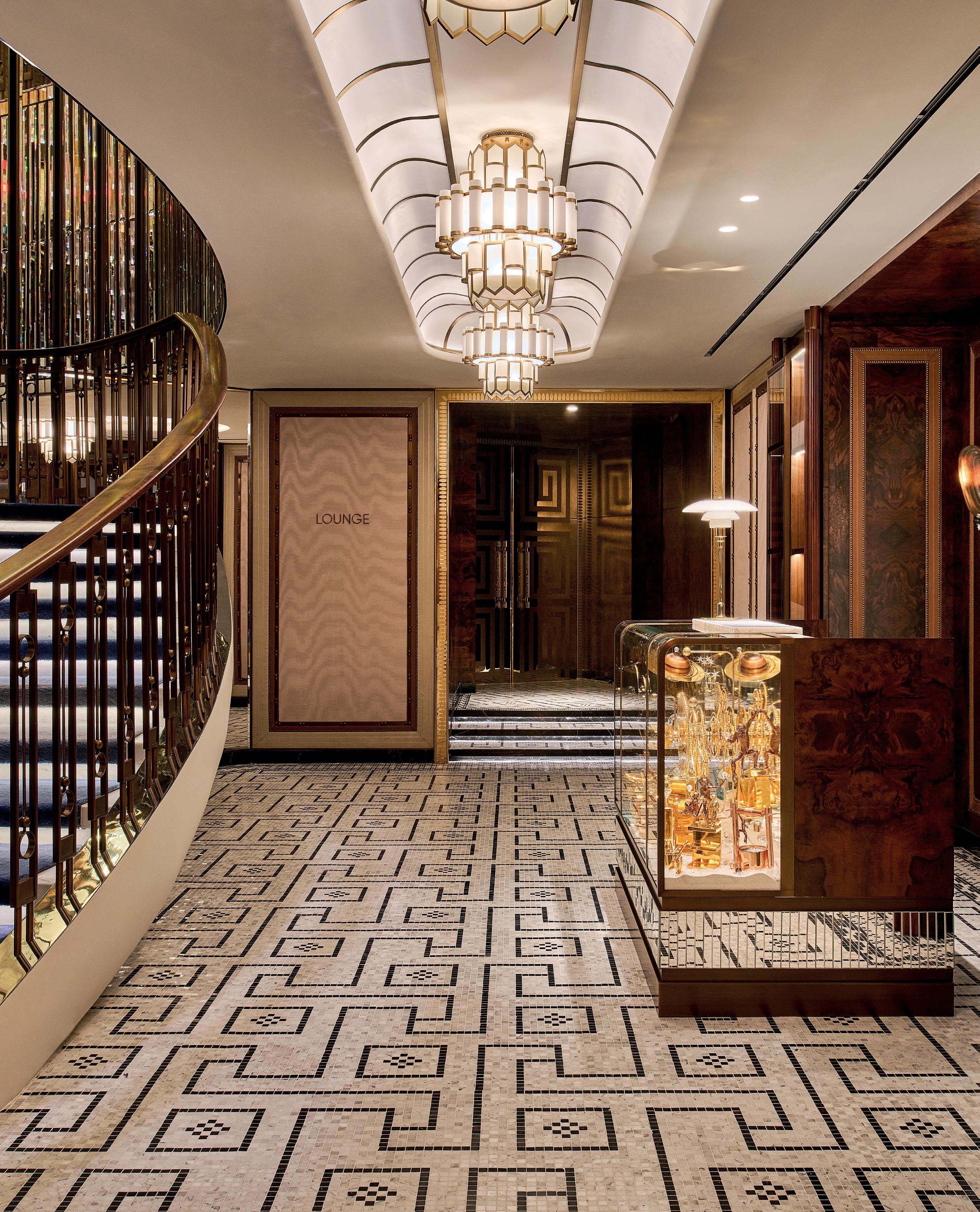
PROJECT NAME:
At.mosphere Restaurant and Lounge
PROJECT LOCATION: Burj Khalifa, Downtown Dubai
CLIENT: Emaar Hospitality
CONTRACTOR:
ALEC FITOUT
PROJECT MANAGER: Mirage Leisure and Development
INTERIOR DESIGNER: London 1508
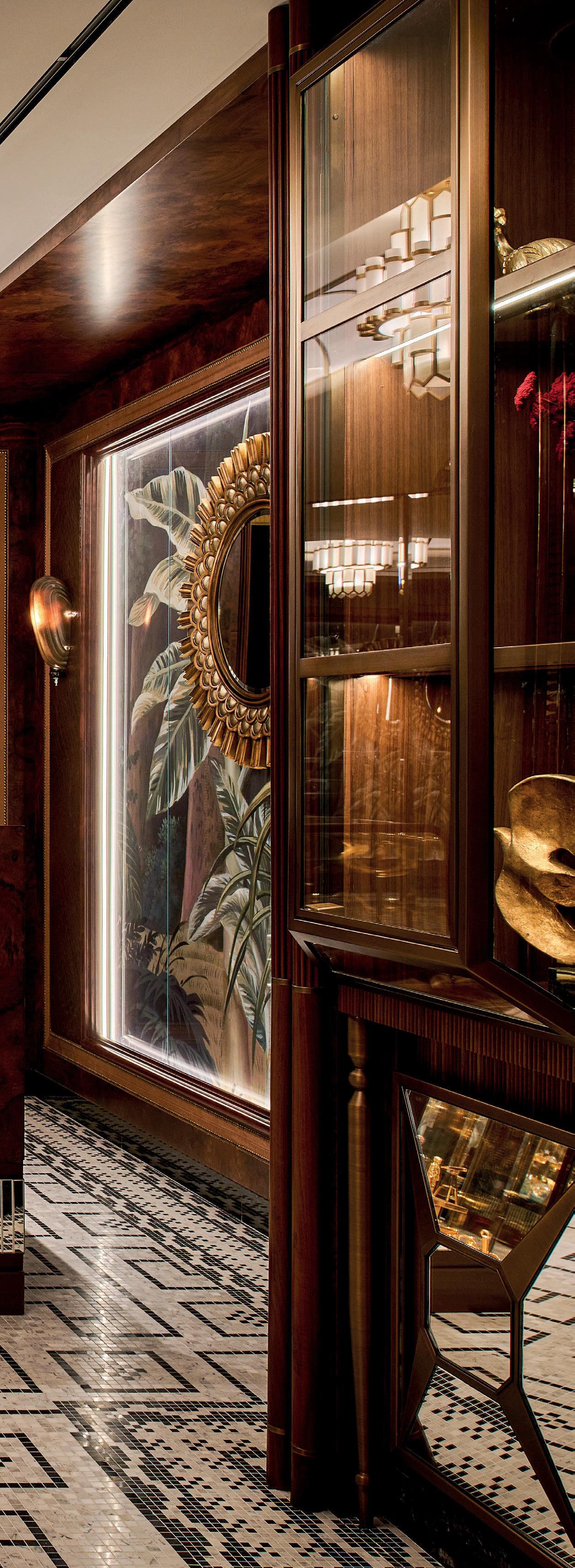

LIGHTING DESIGNER: Nulty
BIG PROJECT ME SPEAKS TO LAURENT FARGE, GENERAL MANAGER OF ALEC FITOUT, ABOUT WORKING ON THE ICONIC AT.MOSPHERE RESTAURANT AND LOUNGE AT THE BURJ KHALIFA, WHICH WAS RECENTLY RELAUNCHED FOLLOWING A SIXMONTH REFURBISHMENT PROCESS LED BY THE FIT-OUT CONTRACTOR
hether you’re a tourist, resident, or just transiting through Dubai, one of the first things you associate with the city is the iconic Burj Khalifa – the tallest building in the world, and the certainly one of the most eye-catching structures anywhere on the planet.
While the tower is known for its extravagant lighting and fireworks displays on New Years Eve, it is also home to a number of attractions, including one of the world’s highest restaurants – At.mosphere, where diners can take in 360-degree views of Dubai, while enjoying some of the finest food and cocktails in the city.
In operation since the Burj Khalifa opened in 2010, the restaurant and lounge was in need of an extensive refurbishment benefiting its status. As such, Emaar announced a sixmonth-long closure of the space to relaunch it in a new avatar.

Sitting 442-metres above the ground on the 122nd floor of the Burj Khalifa, the At.mosphere Restaurant and Lounge is a dining destination that has undergone a complete revamp over the last few months. Starting from the trip in the world’s fastest elevator, guests are treated to an distinctively Dubai experience, with a highly curated menu delivered by some of the city’s foremost chefs, in either a more formal dining setting, or the more casual lounge and bar area.
“The reopening of At.mosphere is a momentous occasion for us all. Our aim was to redesign the concept to create something truly fascinating and we believe we have achieved this and more,” says Mark Kirby, head of Emaar Hospitality.
“The elegant interiors, unbeatable views, and cuisine all combine to create a remarkable venue, worthy of its prime location in the iconic Burj Khalifa. We look forward to welcoming guests back to experience the new and improved At.mosphere and partake in an elevated level of fine dining brilliance like nowhere else in the city.”
Of course, delivering such a highprofile project was no easy task, especially due to the expectations riding

on it from both the client and the public. Given the scale and scope of work, there were only a few fit-out contractors available in the local construction sector who have the capability to carry out such a complex and challenging project.
Therefore, it was no surprise to see ALEC FITOUT appointed as the contractor for this fast-track, logistically complex, luxury renovation project. The fit-out contractor is well known for its ability to deliver luxurious and complex hospitality projects, with extensive experience in the UAE for the delivery of complete five-star hotels and resorts.
As the company is keen to move into delivering standalone luxury food and beverage, entertainment, wellness, beach clubs, and nightclub projects, the successful delivery of the At.mosphere Restaurant and Lounge is a significant achievement despite its many prior successes, says Laurent Farge, general manager of ALEC FITOUT to Big Project ME.
“We have worked very well in the past with our client Emaar, and with the project manager, Mirage Mille. This fast-track refurbishment project presented its fair share of challenges, especially in terms of logistics. However, from the start of the project we had
The Restaurant and Lounge are located on the 122nd floor of the Burj Khalifa, 442metres above ground level
a very collaborative approach with the client team so as to ensure that design development, coordination, and procurement could overlap and thus help ensure that we delivered the project successfully,” he relates, adding that there was also continuous coordination with other stakeholders on the project, such as the At.mosphere operations team, the Armani Hotel, and the Burj Khalifa Management Office.
Having this collaboration approach was important as the total project duration was just six months, including engineering, procurement, demolition of existing finishes, and fit-out of all spaces, including the entrance and reception, restaurant, bar lounge, VIP lounge, washrooms, and the kitchen and back-of-house areas.
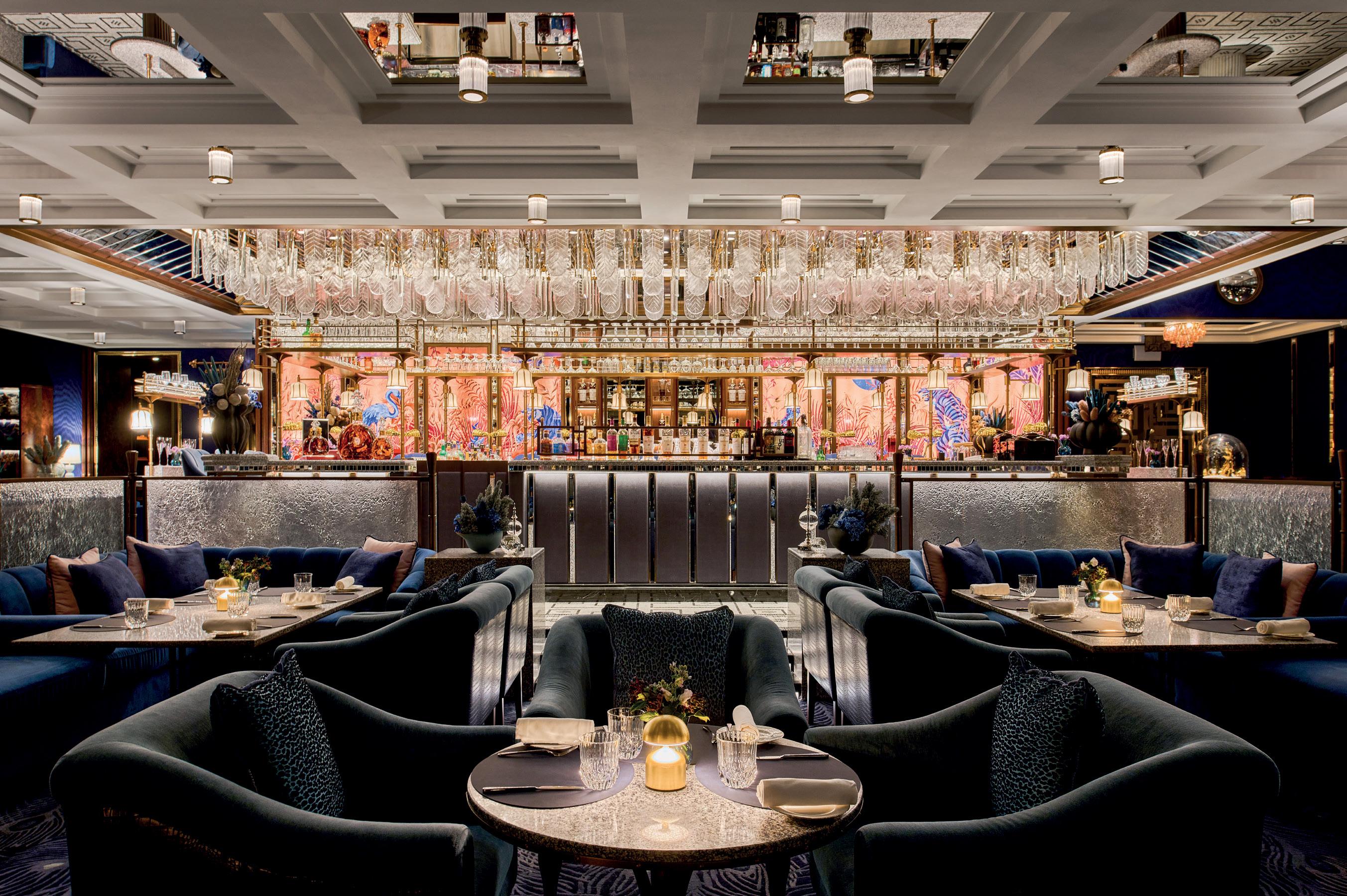
Given the compressed timeframe of the project, its location, and the limited space available on site, effectively managing all the logistics was essential
Logistical management Due to the compressed timeframe, tight space, and limited access to elevators, logistics had to be carefully planned for the project.
130
to its success, Farge adds, pointing out that the team also had limited access to elevators in the building.
“To manage this, all our logistical activities took place at night, including all removals from, and deliveries to, the site. It was also important to ensure that materials were delivered to site according to the installation sequence so as to minimise the number of materials stored on site,” he continues, pointing out that at the peak of work, there was a workforce of 130 people, operating across day and night shifts.
As ALEC FITOUT were appointed on a design and build contract, the project team was intimately involved in every step of the project. The design direction provided by the client was for a modern, French Art Deco style, while still being classic and sophisticated.
The concept and the interior design development was from London 1508, and ALEC FITOUT was responsible for the
Total number of people that worked on the refurb project at its peak
This fast-track refurbishment project presented its fair share of challenges. However, from the start we had a very collaborative approach so as to ensure that design development, coordination, and procurement could overlap and thus help ensure that we delivered the project successfully”
development of the interior design and to ensure that it was fully coordinated with the MEP, which was a design and build package within its overall scope.
All permitting and authorities were also within their scope of work, Farge says.
He added that the level of detail in the design was also demanding of the team as it required close attention to details and interfaces so as to produce the level of quality required.
“It was a complex project, given the very tight program in terms of logistics – both within the building and the logistical challenges of international procurement and coordination. Thankfully the ALEC FITOUT team has delivered many projects previously with extensive international procurement and as such we have a strong internal procurement and logistics department,” he continues, while pointing out that the overall venue covers an area of more than 1,000 square metres.
This essentially meant that ALEC FITOUT were a main contractor within the space as it had structural, MEP, fit-out, FF&E, AVIT, ELV and kitchen equipment all within its scope of work, he adds.
“This is the scale and scope of project where we can really provide value for our clients as we have a strong combination of in-house resources, coupled with very strong local, regional and international supply partners. We really understand how to manage and coordinate many specialist disciplines all under one contract – this removes the headache for clients as there is a single point of contact for all decision making on the project.
“In terms of design intent and materiality, the restaurant is adorned with rich and decadent colours and textures, from velvet to leather and dramatic accent walls, with lighting that purposely enhances the space at every point from dusk until dawn,” he continues. “Our scope also included all the fixed furniture

250 Total weight, in kg, of the chandelier that welcomes guests at the receptionDecadent feel The restaurant at At.mosphere is adorned with rich and decadent colours, textures and fittings that enhance the space at every point.
All our logistical activities took place at night, including all removals from, and deliveries to, the site. It was also important to ensure that materials were delivered to site according to the installation sequence so as to minimise the number of materials stored on site”
and equipment package. For luxury restaurants the quality of the furnishing and finishes is incredibly important. Overall, we had 659 items of FF&E in our scope. We procured and produced these from all around the world and well as local fabrication in the UAE.”
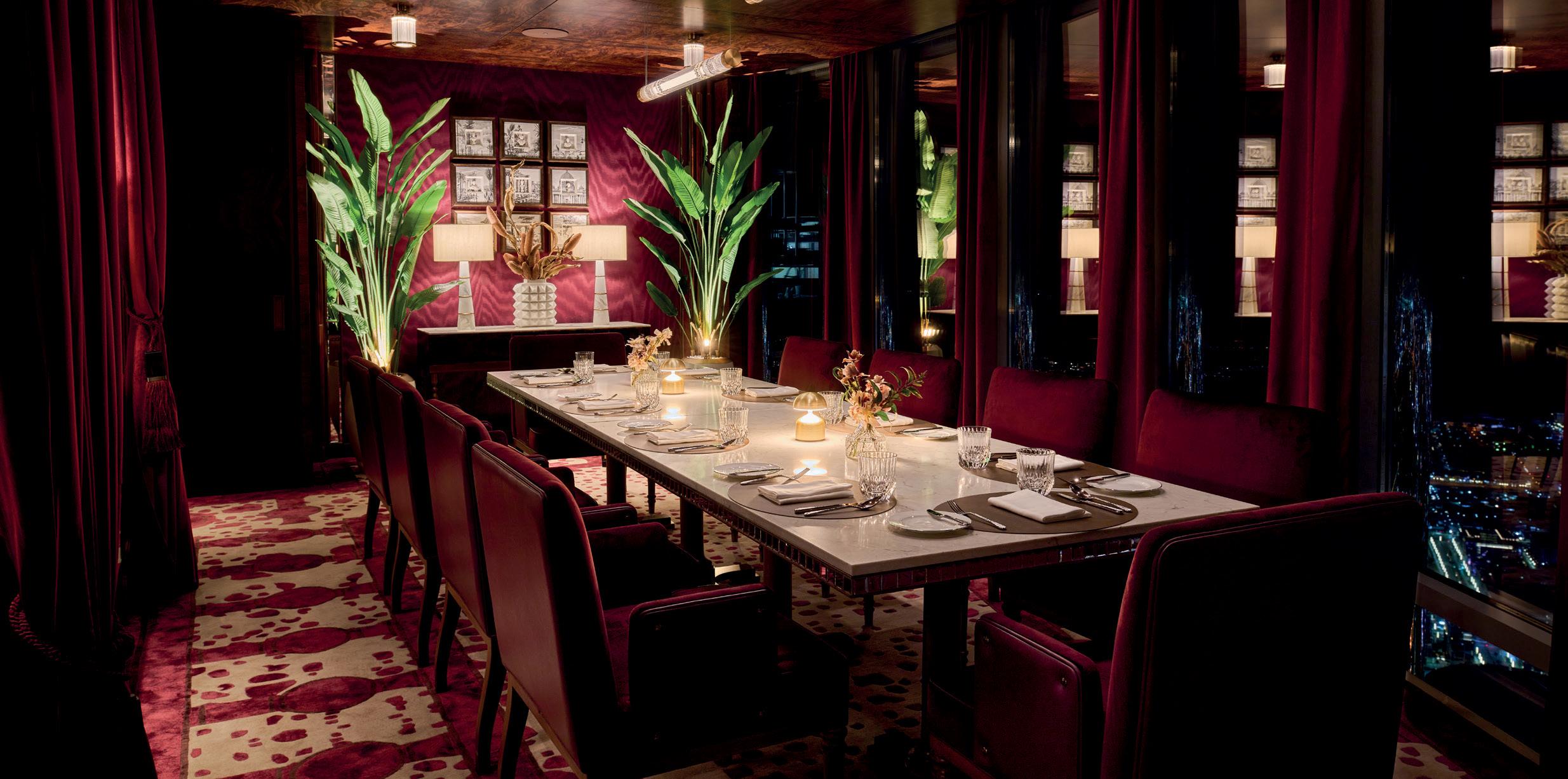
In the lounge area, guests receive an extravagant welcome at the Champagne and Oyster Bar thanks to a showstopping giant chandelier that dominates the space. Combined with floor-to-ceiling windows, the venue provides a spectacular backdrop to the city, with guests able to avail of all-day dining, afternoon teas, or signature cocktails prepared by trained mixologists. Also part of the lounge area is The Conservatory, which is a VIP area where guests can sample some of the world’s best cigar brands, that have been paired perfectly with French Cognac.
“In the project delivery, we engineered and fabricated some luxury iconic features, such as the 250-kilogram feature chandelier which was located over the main staircase at Level 124, and connects with the level below via a 12-metre double height space,” says Farge.

“The installation of this item was particularly challenging for our team, but the finished product makes it worth all the effort.”
Farge is also keen to highlight the global production and procurement
processes for the project, pointing out that the team also sourced printed wall coverings for the reception lobby from Singapore. The seating and dining tables have been fabricated in UAE, while the fabric or leather for them was imported from five different countries in Europe, so as to ensure that the design intent was maintained within client budget requirements.
Another design feature that achieves the design intent and is very impressive for guests arriving to the venue is the signature and feature flooring which is a combination of 700 square metres
of water jet cut Calacatta white and Black Marquina marble flooring.
“There were complex composite finishes and items whereby we had a number of specialist finishes within a single feature item – these items were challenging from a production and coordination point of view, but again the finished product justifies all the efforts in ensuring a world class quality of finish was achieved,” he says proudly, and is especially keen to highlight the two 15-metre-long bar and restaurant counters that were engineered and fabricated by incorporating walnut wood, electroplated stainless steel, leather, and stone on the countertop.
“Overall, we believe the At.mosphere Restaurant and Lounge is an incredible addition to the luxury food and beverage scene in Dubai and we are very proud to have had the opportunity to deliver this iconic project for the client team.
“We specialise in transforming beautiful designs into reality. Whenever a client approves their design intent and understands their design vision, they will receive a set of 3D renders which forms the benchmark in relation to the look and feel of the project. It is crucial that the finished project remains faithful to and achieves or enhances the original design intent. When you compare the original 3D renders versus the final product, I believe you will be impressed with what we have delivered,” he concludes.
Innovation has been a driving force for growth in the construction industry, and to ensure that products and materials used in construction meet the relevant standards and pose no threat to the community, they must undergo rigorous testing and certification processes. In the MENA region, there are increasing efforts from the regulatory agencies to implement policies and procedures that support the safe and compliant use of innovative building systems.
The International Code Council’s recently concluded workshop on February 15, 2023, highlighted the importance of a strong regulatory framework that can accommodate innovation and how, through its services, the International Code Council Evaluation Service (ICCES) is bridging the gap.
The inaugural workshop was presented by the International Code Council’s MENA office in Dubai (ICC MENA) and it focused on the need to streamline the process of enabling the safe use

of innovative and sustainable products in the construction industry. Presentations by manufacturers, regulators, stakeholders, and ICC-ES provided valuable insight and suggestions for improving the market for innovative construction products and materials.
It is crucial to evaluate construction products to ensure that designers can specify and builders can purchase safe and compliant
materials and systems. In markets and industries where any product failures will have significant consequences, certification becomes a requirement. Certification offers numerous advantages, such as demonstrating compliance with specific standards, ensuring that products are used properly and meet the required specifications, and providing assurance to manufacturers and developers about product quality. By following the right compliance pathways, manufacturers can also reduce their risks and liabilities, while maintaining quality assurance for the certified products.
The use of quality-assured testing and certification processes and systems ensures the consistent compliance of every building product. In the MENA region, where scheme owners and demand drivers are AHJs, ensuring public safety is of top priority, and a robust regulatory framework is a critical pre-requisite to ensure compliance with building codes and standards. As a building safety expert with 90 years of history, ICC-ES understands that a strong regulatory framework for evaluating innovative construction products must resonate with reliable, accredited product testing and certification
processes to guarantee the safety and quality of construction products and materials.

As a reputable third-party certification company, ICC-ES is independently accredited by numerous agencies to ISO/IEC 17065, and specialises in conducting technical evaluations of building products, materials, and systems to assess their compliance with building codes and standards. With their trusted engineering expertise, ICC-ES has become a key player in the industry, providing technical evaluations to support regulators in the MENA region. Through partnerships with the AHJs, ICC-ES provides confidence to regulators, designers and the public by ensuring that every construction product and material entering the market meets specific standards without compromising public safety.
Offering total conformity assessment solutions for building safety stakeholders, including product testing, evaluation, and certification, ICC-ES works closely with all concerned stakeholders. It aims to provide a comprehensive solution that fills the gap between prescriptive regulations and innovative solutions and ensures the safety and compliance of construction products and materials, building a safe future for the community.
By facilitating the workshop, ICC MENA was able to serve as a market enabler, building trust among stakeholders and ultimately honouring and fostering safer and more compliant construction practices from all concerned parties. This exchange of insights and perspectives will continue to create opportunities for stakeholders to identify emerging trends and develop strategies to meet the evolving needs of the market.
THE EVENT: INTERNATIONAL CODE COUNCIL’S WORKSHOP EXPLORING THE SAFE AND COMPLIANT USE OF SUSTAINABLE AND INNOVATIVE TECHNOLOGIES IN CONSTRUCTION
The workshop commenced with opening remarks from notable industry leaders including Dominic Sims, CEO, International Code Council; Meghan Gregonis, US Consul General, Dubai; Engineer Aisha Al-Mulla, Head of Research and Building Section, Dubai Municipality; and Engineer Riyadh Al Rasheed, Director of Technical Affairs, Saudi Building Code National Committee.
More than 90 delegates attended the event, with attendees coming from across the industry, including leading authorities having jurisdictions (AHJs), developers, contractors, architects, designers, and manufacturers, among others. The International Code Council showcased its on-the-ground support for organisations involved in

building safety including government entities, construction management corporations, manufacturers, and design professionals.
Hosted by Mohamed Amer, Regional Director of Operations, ICC MENA, the workshop explored the need for increased compliance in the construction industry, especially in growing markets of the MENA region. He was joined by Dominic Sims, CBO, Chief Executive Officer, International Code Council and Shahin Moinian, PE, Executive Vice President of the International Code Council’s Conformity Assessment Group, as well as several International Code Council senior executives and board members from the United States.
The workshop delved into the challenges and opportunities in the region as it pushes the boundaries of architecture and engineering with ambitious projects in Saudi Arabia and the UAE. Fundamental to safety in the built environment, the workshop highlighted the



crucial importance of a robust regulatory framework for advanced and new building systems.
Amer called for the sector to understand the importance of starting from a solid foundation, with stringent compliance, education, and technical knowledge sharing back to the construction community being keys to the future progress of the industry.

In order to better understand the aims and objectives of the International Code Council, Big Project ME caught up with Dominic Sims and Shahin Moinian on the side lines of the event for a chat about the day, the importance of codes and standards for the construction sector as it grapples with an unprecedented technological revolution, and the work that the International Code Council is doing with regional governments, following the successful launch of its office in Dubai.
“The workshop has been what we’ve envisioned and hoped for, and
that was to get stakeholders talking about the use and application of innovative products and methods,” said Sims. “There’s also a growing understanding that products in and of themselves aren’t ‘it’. It’s about how they fit into a whole building system, and I think that’s one of the values that the International Code Council brings – we have a complete Family of Solutions, for every aspect of the built environment. A lot of the talk today was about product certification and evaluation and how this impacts a particular building design.”
Shahin Moinian added that throughout the day, attendees were conversing with International Code Council representatives and amongst themselves about getting their products certified and approved. He adds that he felt that there was a sense of uncertainty around starting the process of certification, which is why holding the workshop was so important.
“The major manufacturers design
products to ensure compliance with the codes and standards before launching them. But some of the people who come up with innovative widgets and products, they may not know (the codes) or the process. Or maybe, they just need to find the right person to go and talk to,” he highlights, illustrating the reasons why the workshop needed to be held.
Sims points out that while things are evolving in the right direction, with the GCC increasingly taking on a strong leadership role, things can certainly improve across the region.



“Our activities here have certainly increased. We’ve established an office in Dubai and will likely be opening an office in Saudi Arabia as well, because there’s so much interest,” he says. “What we hope to see is more uniformity – that is part and parcel of our mission. One of the speakers pointed out today that the more unified a regulatory system is, the greater the level of compliance, and it actually helps reduce costs, because manufacturers

What we hope to see is more uniformity – that is part and parcel of our mission. One of the speakers pointed out today that the more unified a regulatory system is, then the greater the level of compliance, and it actually helps reduce costs”
then don’t have to create separate products for smaller markets but can instead create one product for a much larger market.”
Moinian points out that Abu Dhabi and Saudi Arabia have codes that are based upon the International Codes (I-Codes) and their codes reference many of the same standards of the model I-Codes .
“In those two jurisdictions, I believe that the standards are well developed. In Dubai, – we had a fantastic meeting with Dubai Municipality (recently) and it looks like we’re going to cooperate and they’re going to use some of the criteria that we have developed for a lot of products,” he reveals.
“It takes a while for all parties to get on the same wavelength, but they (Dubai Municipality) have fantastic engineers – second to none – and our engineers are the same. It behoves us to cooperate. But at the same time, I feel that it’s one of those exponential type of things. We’re now on the same wavelength and as time goes on, it’ll be to the benefit of both parties to cooperate. They have a lot of evolving business activities, and we are glad to be part of it” Moinian asserts.
Looking forward, Sims highlights Saudi Arabia as a key market for the International Code Council to

have a base in and noted that the company is still working on the timeline for setting up an office there. However, he asserts the pace and scale of the giga-projects taking shape in the Kingdom means that there is a lot of demand on and for ICC resources, and that being on the ground will make a significant difference to the International Code Council’s ambitions there.
The International Code Council has been involved in projects in the region for more than 27 years and several jurisdictions use the International Codes as the basis for their building safety regulations.
For example, in 2012, Abu Dhabi government, through its Department of Municipal Affairs, introduced the Abu Dhabi International Building Codes, which are based on the International Codes developed by the International Code Council to be the standards to guide the development of construction projects in the Emirate.
Furthermore, while the I-Codes have been widely referenced in specific projects in Saudi Arabia for many years, including most of Saudi Aramco’s construction projects, in 2018, the Saudi Building Code National Committee introduced a mandatory suite of codes based on the I-Codes.
“Communication to the industry is so important. Our team needs to convey the message that the International Code Council is a knowledge company, offering total conformity assessment solutions, and transferring our knowledge to manufacturers, designers and regulators,” Sims points out.
The Gulf Building Codes, which were announced by the Gulf Standardisation Organisation in September of 2022, are in turn based on the Saudi Building Code, drawing heavily from the I-Codes. Some of the new Saudi giga-projects, including NEOM, will see the implementation of the codes to create resilient projects, they add.
Both Sims and Moinian say that they are confident about this last development having a transformative impact on the industry.
“Obviously, purely from a building safety perspective, uniformity has a lot of advantages to it. Firstly, it’s more predictable –manufacturers know what the rules are, while contractors understand them as well. Consequently, you can create more robust training programmes,” Sims elaborates.
“But at the same time, communities and governments are unique, and sometimes there are unique situations – so we
have to allow for that diversity. I don’t think there’s a one size that fits all, but it should be possible to achieve something like 80% or 90% uniformity, with a little bit of wriggle room.”
Moinian adds that as an organisation, the International Code Council is currently focusing its efforts on moving the needle forward in its key markets of Dubai, Abu Dhabi, and Saudi Arabia.
“However, as time goes on, I think we’re going to spread through the region. We have the tools to train and help manufacturers from any part of the world. What we do helps save lives,” he asserts, adding that the International Code Council is committed to continuously updating and improving its codes and standards.
Furthermore, because a lot of work carried out by the International Code Council is in the virtual world, both he and Sims encourage regional professionals to get involved online and become engaged in the process of developing and understanding codes for the region’s built environment.
“Our codes and standards are adopted, referenced, or accepted and implemented by a whole range of jurisdictions, both big and small,” says Sims. “Sometimes, they’re implemented more effectively than others, and that’s really something that governments need to consider when they’re looking at their economic development. The construction sector is important to most economies, and with the changes that are going on with regards to decarbonisation, it’s going to be even more important.
“Which is why we do offer training for regulators, to have them understand what best practices are, in terms of creating a one-stop permitting approach, or even streamlining the regulatory system. It takes a local will to want to do things like that, and we absolutely see that here in the region,” he concludes.
MIDDLE EAST
Post pandemic, throughout 2022, the GCC saw many new developments come to fruition and new projects being announced. 2023 is already showing a focus on tourism mega-projects as well as super luxury residential and mixed-use developments.
Fast-growing interest in the Middle East hospitality sector has now extended to residential markets. Dubai continues its trend of being a hotbed of luxury residential development, with the sector seeing a big push towards branded residential and resort-living concepts as market differentiators. Engaging hospitality design experts in these projects has now become a practical mandate.
As the profiles of the UAE and Saudi Arabia continue to grow with world-first giga projects in progress and an impressive contingent of top industry talent moving into the country, the entire region is feeling the ripple
effect. The UAE now has a viable competitor in KSA for record-breaking developments, and this continues to be at least some of the impetus behind more innovative thinking, design, and development, moving forward.
In this context, we have designed a multitude of ultra-luxury developments and are seeing a particular movement toward resort-style branded residences with a focus on wellness and restoration.
The latest set of branded residence projects we have worked on include Majid Al Futtaim Properties’ Tilal Al Ghafi. Our designs achieved BREAAM “Very Good” status and promotes WELL building principles, which have taken on greater importance amongst developers. Our team curated experiential visuals, telling a meaningful story used to successfully launch the product in the market with a positive response. In this way, we are actively influencing the thinking around the role that sustainability plays in selling a product to the end customer, and this
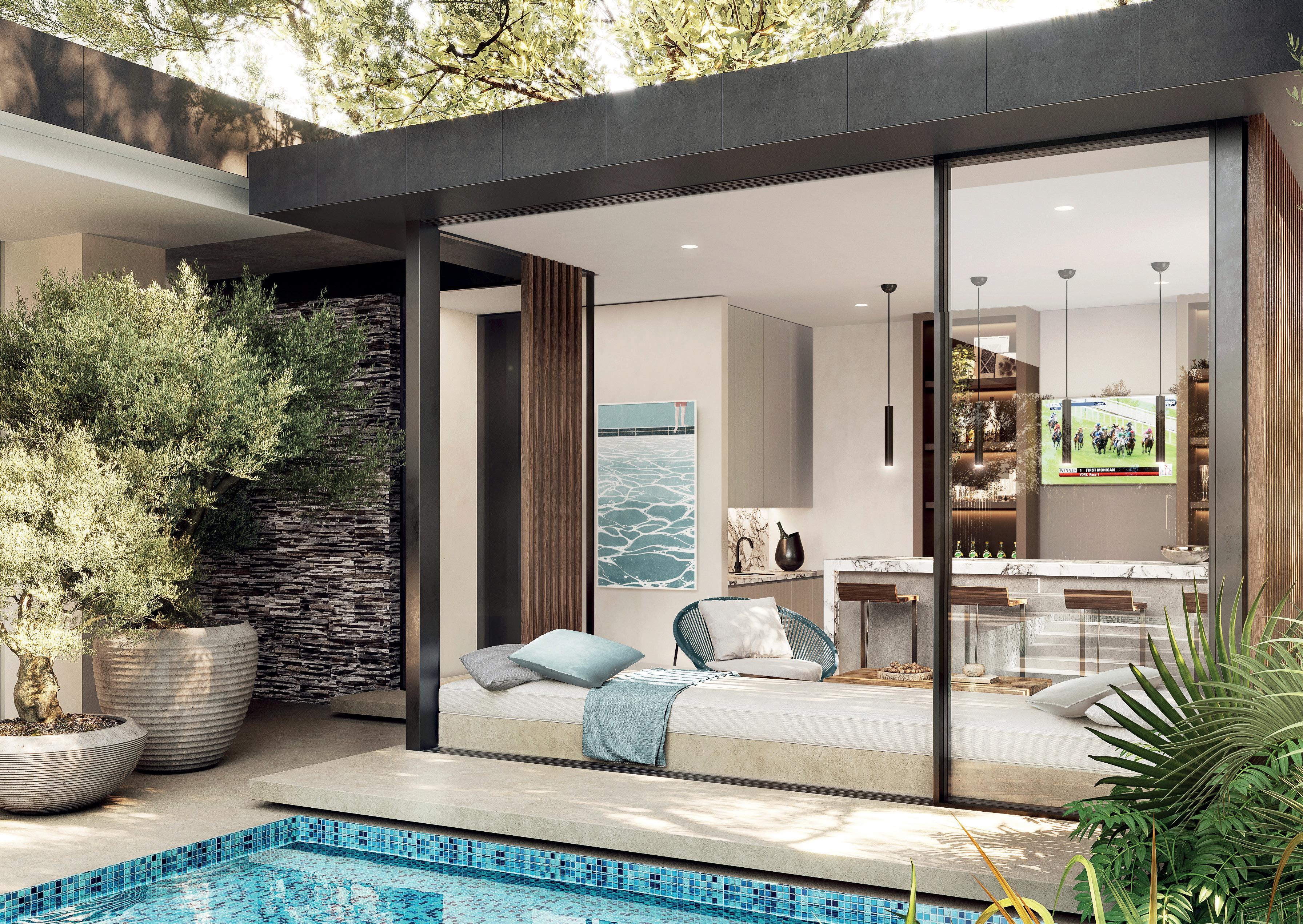
Thomas Williams, Studio Director at Gensler Middle East, co-leading hospitality, residential and retail, takes a look at the ultra-luxury real estate segment across the GCC region
is the direction we see the ultra-luxury space moving into. The rest will follow.
On another note, Dubai offers branded residences such as the first Six Senses Residences, planned for 2024, as the CEO of the global luxury hospitality brand reported demand from affluent current and future UAE residents.
Four Seasons Hotels and Resorts, the world’s leading luxury hospitality company, has announced plans to expand its presence in the Middle East alongside Saudi-based investment firm Midad Real Estate. Together, they will introduce the Four Seasons Hotel and Private Residences Jeddah at the Corniche, a new-build coastal retreat, also scheduled to open in 2024.
The luxury segment in Dubai continues to flourish. Increasing pressure from Saudi developments will, over the coming years, force Dubai to develop even more distinctive offerings. This race may benefit both the development pipeline and the consumer. At the moment, the market is solidly Dubai, which is recognised as the world leader in branded residential offerings. The slower approach of Abu Dhabi will be something to watch as it makes largescale investments into the luxury sector.
Global property consultancy, Knight Frank’s 2023 Prime Prediction report showed that Dubai topped the list in
residential, retail and leisure, commercial and sports. The average value per transaction across the GCC in 2022 was $280,000, which surpassed 2017’s average of $223,000 by 25.6%. At its current pace, sales transaction volumes across the region are on course to reach one of its highest levels ever recorded, with strong demand for both off-plan and completed residential assets. This has been mirrored by requests we’ve received for proposal type, project value, and star rating.
The UAE property market, and Dubai in particular, has experienced quite a year. Despite global economic headwinds, high-net-worth individuals have flocked to the UAE over the past 18 months, in the luxury market. The number of HNWIs is expected to rise by 22% in the next five years, according to Savills.
to have the highest prime price growth in the world in 2023, ahead of Miami and Paris. Among the records in 2022, was Dubai’s most expensive property on Palm Jumeirah Island For $163 Million, while another villa on The Palm was rented out on a six-month basis for Dh4 million, and monthly sales totals surpassed previous highs throughout the year.
Analysts, developers, and market specialists believe the market for luxury homes in Dubai has led the charge and is expected to continue to do so during 2023. The luxury property segment in Dubai will continue to climb this year as prices are expected to sustain an upward trend due to rising demand from high net-worth individuals (HNWIs), tight supply and fewer launches of new developments, albeit at a slower pace than the latter half of 2022, experts say.
Based on the latest statistics, the price of luxury properties witnessed a year-on-year growth of nearly 89% during the third quarter of 2022 and is expected to continue in 2023.
A recent report from Knight Frank also predicts that the luxury property market will grow further in 2023 by 13.5%. This is a record in itself, as no other global property market is expected to touch the double-digit mark this year.


As a final remark, according to Core, the real estate consultancy, 2022 saw the highest ever number of transactions recorded above the US$27 million mark — a total of 16 transactions recorded year-to-date 2022 compared to only five transactions in the whole of 2021.
With strong demand drivers, visa reforms and Dubai’s positioning as a global destination and tax haven along with internationally comparable ultraprime supply catering to this niche audience, we expect demand for the prime and ultra-prime market to continue.

Mohammad bin Salman bin Abdulaziz, Crown Prince and Prime Minister of Saudi Arabia, has announced the launch of the New Murabba Development Company (NMDC), which aims to develop the world’s largest modern downtown in Riyadh. The move will contribute to the city’s future development in line with Saudi Vision 2030.
According to a statement from the Public Investment Fund (PIF), the New Murabba project will be built around the concept of sustainability, featuring green areas, as well as walking and cycling paths that will enhance the quality of life by promoting healthy, active lifestyles and community activities. It will also feature a museum, a technology and design university, a multipurpose immersive theatre, and more than 80 entertainment and culture venues.
The new entity will develop the project and also build the “Mukaab”, an iconic landmark featuring the latest innovative technologies.
The design of the Mukaab includes first-of-its-kind facilities and will be one of the largest built structures in the world, standing 400m high, 400m wide, and 400m long. The cube shape of the structure will ensure
the
to accommodate the technologies necessary to develop the icon.
Inspired by the modern Najdi architectural style, the Mukaab will be the world’s first immersive destination offering an experience created by digital and virtual technology with the latest in holographic technology. The landmark will encompass a tower atop a spiral base, and a structure featuring two million sqm of floor space that will be a premium hospitality destination with a multitude of retail, cultural and tourist attractions, along with residential and hotel units, commercial spaces, and recreational facilities, the statement noted.
The development is expected to add US$47.9bn to non-oil GDP and create 334,000 direct and indirect jobs. The project is due to be completed in 2030.
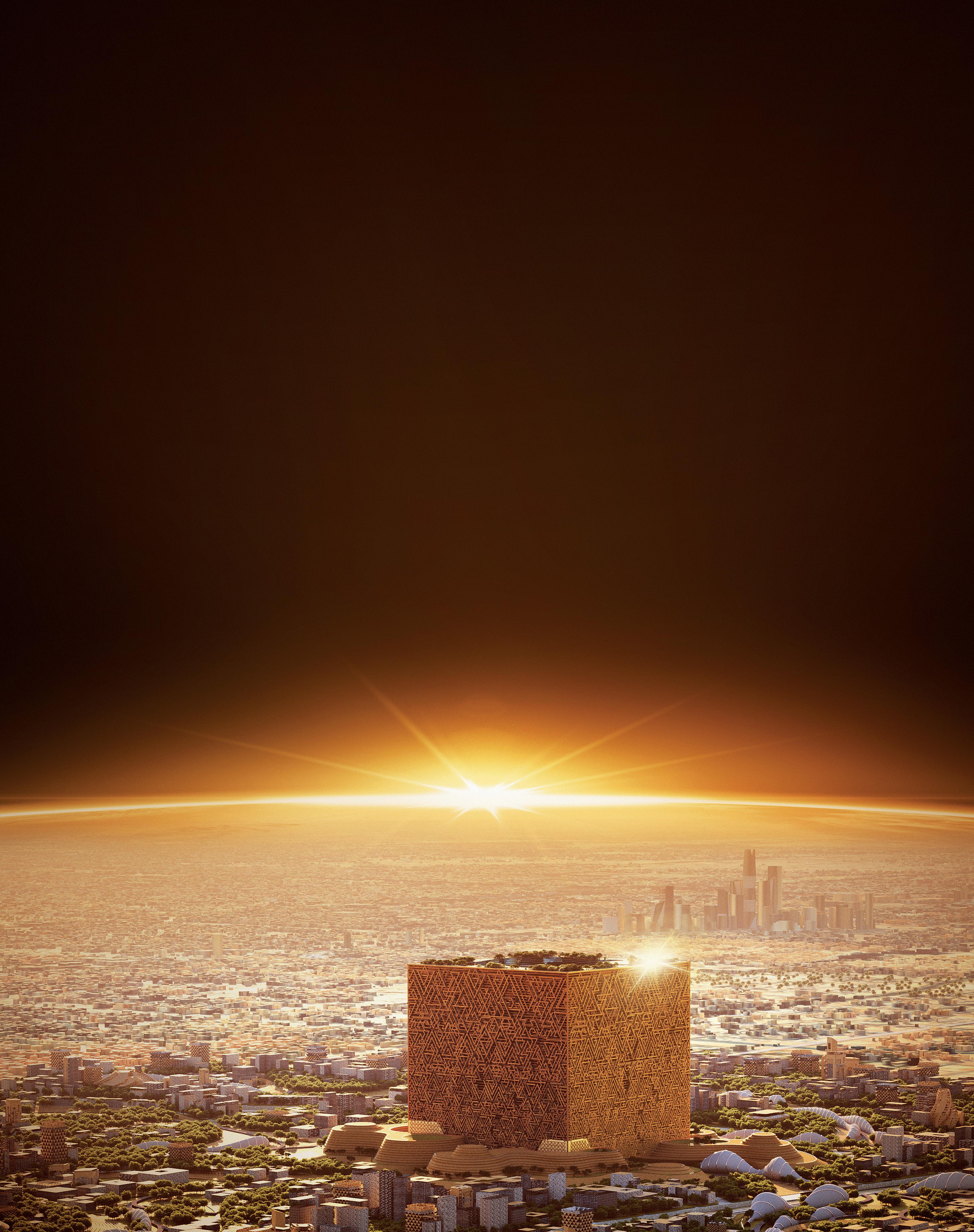

















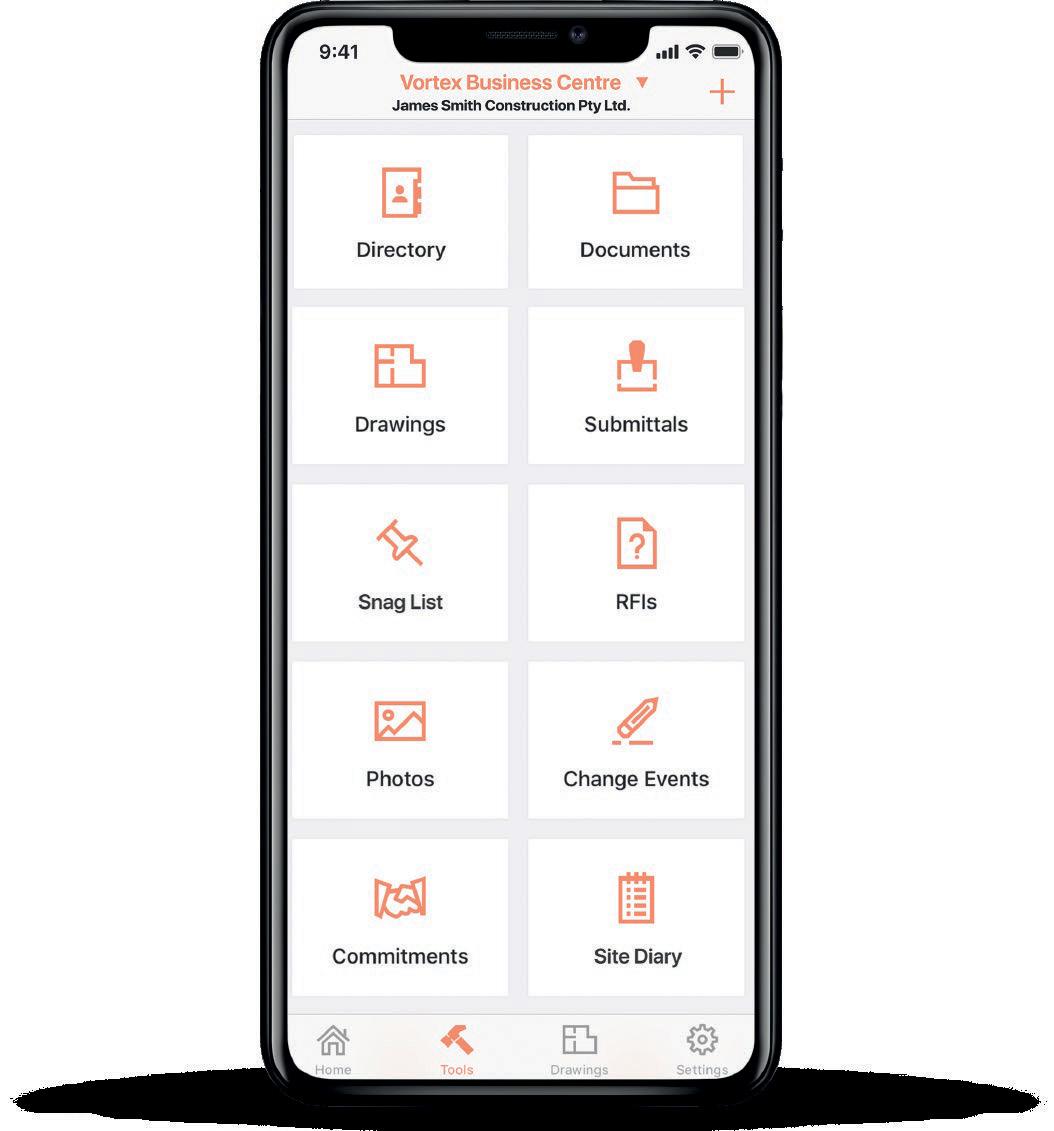
Smarter Construction Platform
“With real-time access to plan changes and associated notes, we remain tethered to every conversation.”
John Juanillo, Document Controller, Verve Design Interiors